
In some ways, 2018 felt like the hardest year for music in a long time. There was huge loss — rising stars like Lil Peep, XXXtentacion, and Mac Miller all died way too young and, tragically, from drugs and violence, echoing the darkest moments of our culture on a national scale. Mistakes were made, transgressions came to light, plenty of people were dragged, roasted, and mercilessly mocked online, just for, well, trying to get through the year. That’s where the music comes in, though.
No matter how dreary and depressing things seemed to get this year, an outpouring of undeniable, unstoppable, and downright incredible music just kept rushing through the gates, carrying us all along on the power of a song, or the comfort of an album. In the spirit of music as medicine, here are the 50 albums that helped carry Uproxx Music staffers along in a harrowing year. It feels like creativity was high enough this year that 50 more could easily be on this list, too, but these are the cream of the crop, the best of the best, and the ones that made the final cut.
50. Mac Miller, Swimming
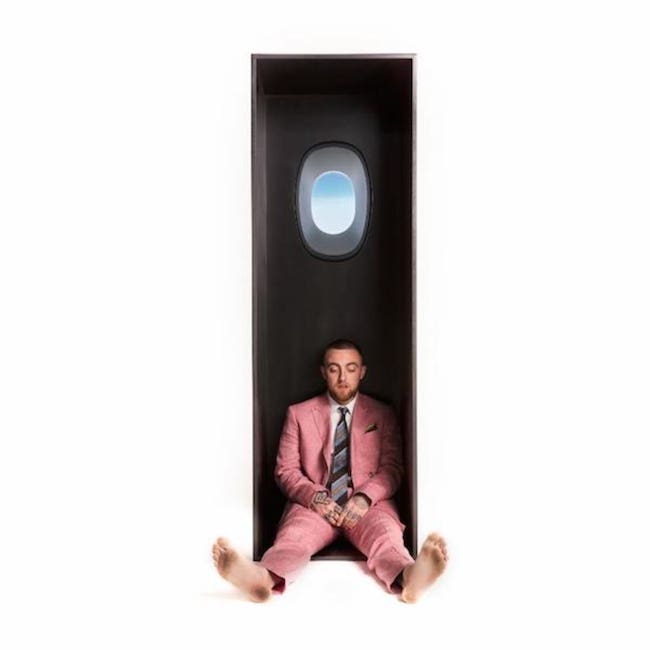
It’s a damn, crying, awful shame that Mac Miller wouldn’t see the outpouring of love and affirmation he’s received in the wake of his death — almost as much as it is one that all that love seemed to have been reserved for his passing and not the album he left behind. Swimming, simply put, was Mac’s best work. It’s his lightest since KIDS, unweighted by the the melancholy he experienced as his career took off and left him feeling more and more isolated. It’s the most musically adventurous since, yes, his last album, The Divine Feminine, without the baggage attached to the nagging questions of inspiration that album brought with it.
Swimming is Mac, for lack of a better term, in the flow of things. He hadn’t figured everything out yet, but he had figured it that he didn’t have to. Assembling a squad of producers and musicians with Dev Hynes, DJ Dahi, Flying Lotus, and Thundercat, Mac laid down lush, luxurious soundbeds for his rambling, stream-of-consciousness raps to wind and wrap around and through on tracks like “Self Care,” “Ladders,” and “Conversation, Pt. 1.” With all that, the true tragedy of the loss of Mac Miller, however cliche it may sound, is that he was just getting started — and getting better all the time.–Aaron Williams
49. Tirzah, Devotion
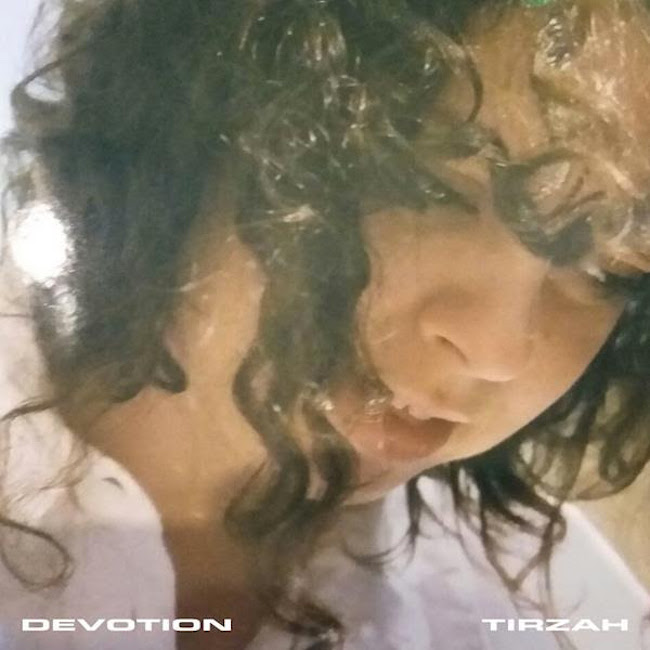
Tirzah’s Devotion is “a slurry meditation on love and loneliness, as moody as wallpaper in Twin Peaks.” The genre-bending album expertly fuses R&B and electronic beats overlaid by Tirzah’s piercing lyrics, and culminates into a melancholic tracklist of musings on love, both wholesome and wretched. The record is produced by longtime collaborator Mica Levi, and the two make an inimitable match, as its tottering instrumentalism provides a flawless backdrop for Tirzah’s songwriting. It’s obvious that she’s the patron saint of earnestness and unwavering loyalty, even when it’s unreciprocated – especially when it’s unreciprocated – and that rarity instantly makes Devotion a treasure.–Leah Lu
48. Kyle, Light Of Mine
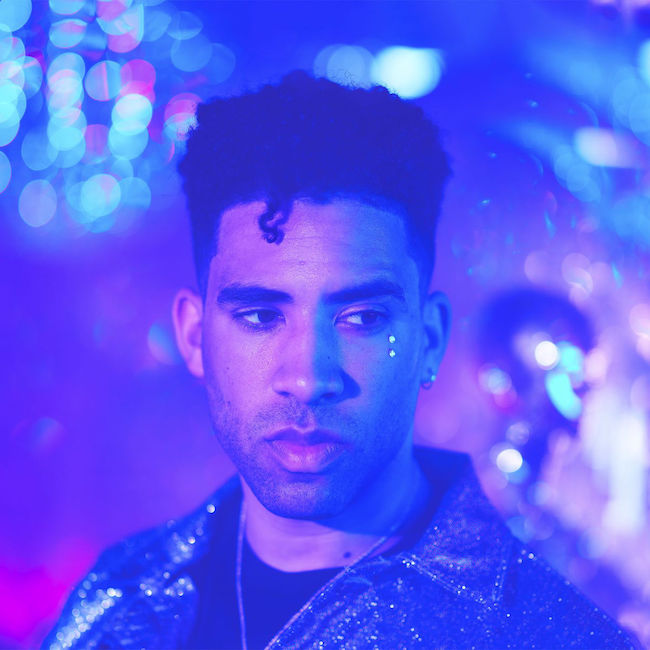
On his cheerful major label debut album, Kyle is happily stuck somewhere in the middle between the awkward nerd and the suave rake, figuring out which aspects of each identity suit him best, and determining to use his own struggle as a beacon to anyone else who feels the same way. Maybe that’s why he borrowed the album title, Light Of Mine, from the folk gospel song that encourages its adherents to do just that — shine for the world, regardless of imperfection, in the hopes of leading the way to a brighter tomorrow.
That theme of “it all gets better” is easy to knock, but Kyle lives for that sort of thing. When he sings, “2016 hit me like a bag of bricks / 2017 switched up like ‘Ooh, it’s lit,” there’s probably not a soul on earth who can’t relate from at least some point in their lives. He sings about fumbling your way through love on “Playinwitme” and “Babies,” swerving between soaring confidence and optimism on “To The Moon” and shaky insecurity on “ShipTrip” and “iMissMe.” And in these moments, it’s one of the most honest and uplifting rap albums of the year. Kyle puts it all on the line: Who he was, who he is, and who he’s hoping we can all eventually be.–A.W.
47. Dilly Dally, Heaven
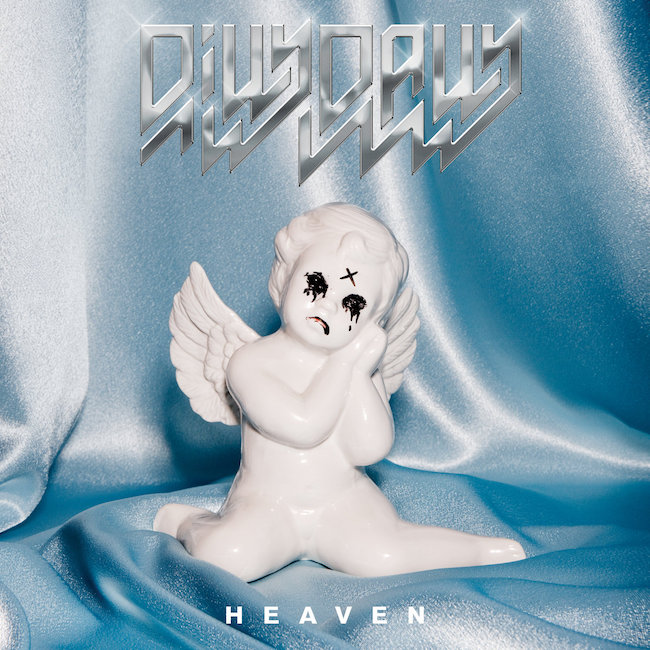
Ever since Toronto stoner-punks Dilly Dally burst onto the scene in 2015 with the seething, screeching vocals of frontwoman Katie Monks on their debut album Sore, they’ve been turning heads in the rock world. The contrast between Monks’ inescapable wailing and guitarist Liz Ball’s classic guitar riffs made them a welcome addition to a still-thriving pocket of rock devotees and fans. But it was only recently that it became clear just how challenging the four-piece found touring to be.
In our profile on the band, Monks admitted there was a point where it looked like Sore was going to be their sole album. The grind of being a unit, of creating together, of living on the road — all of that took its toll. Fortunately for everyone involved, they got the band back together, and created the stormy, discordant, and deeply satisfying Heaven, a follow-up that is indeed fit for the pearly gates themselves. Full of catharsis, pain, joy, and blissed out, edge-of-existence guitar work, Heaven is a record that both raises their profile, and stands as a testament of how impactful battling to stay together against the odds can be.–Caitlin White
46. Kamasi Washington, Heaven And Earth
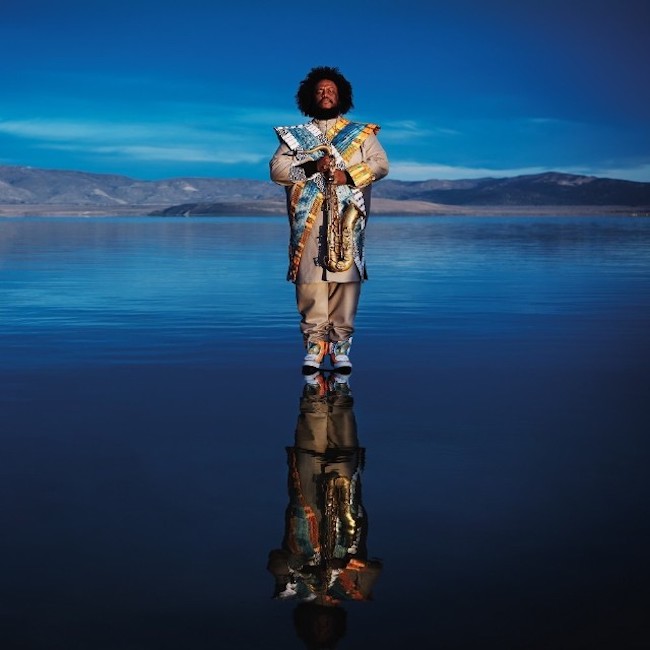
There’s a limited amount of bandwidth afforded to contemporary jazz music in the indie landscape, so it’s really saying something that Kamasi Washington has managed to stand out as one of the modern jazzmen that mainstream music fans pay attention to (although his association with Kendrick Lamar certainly helps). This doesn’t mean that the Los Angeles saxophonist is making music that’s inherently accessible: Jazz is often hard to approach as a casual fan, but Washington holds the door open for everybody with some grooves you can bob your head to and solos you can appreciate. Beyond that, though, there’s an absolute ton going on. To the jazz-ignorant (such as myself, admittedly), the genre can often come across as aimless or meandering, but on Heaven And Earth, it never feels like Washington is wasting time, or like he’s moving without purpose. Every sound is directed in a forward-facing motion, in all the myriad moods, emotions, and ideas he explores on his immense sophomore album.–Derrick Rossignol
45. Metric, Art Of Doubt
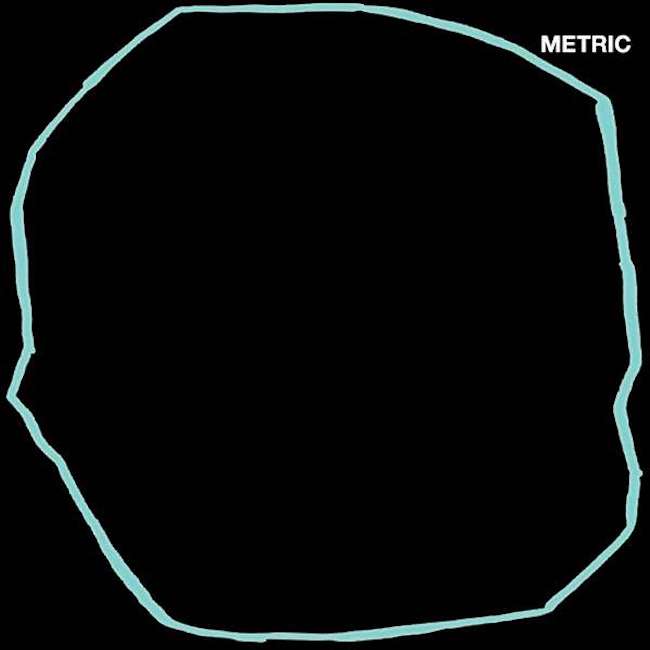
Emily Haines has been in the business of misery for over twenty years, carefully sharpening all her personal gloom into sheer, searing rock songs that cut to the quick like no other — in large part, because they’re coming from a woman. The longevity of her band, Metric, hasn’t halted the Canadian rock quartet from undergoing a kind of metamorphosis on nearly ever album, and their latest, Art Of Doubt, is no different. This record restores Metric to their early glory, rivaling their 2009 hit record Fantasies in scope and accessibility; it’s a collection of songs about power, loss of control, grief, agony, and restoration.
And Haines’ crystalline alto never warps under the pressure of these intensive emotions, twisting instead, into something wise and fierce as the record unfolds. The group cites moving band member James Shaw out of his role as de facto producer and bringing in Justin Meldal-Johnsen for production duties as a major shift that helped restore melodic synergy, and that’s apparent all over the album. It holds together exactly like a record should, not a trace of doubt, even when the lyrics question everything on the planet — including the misery they contain. —C.W.
44. Interpol, Marauder
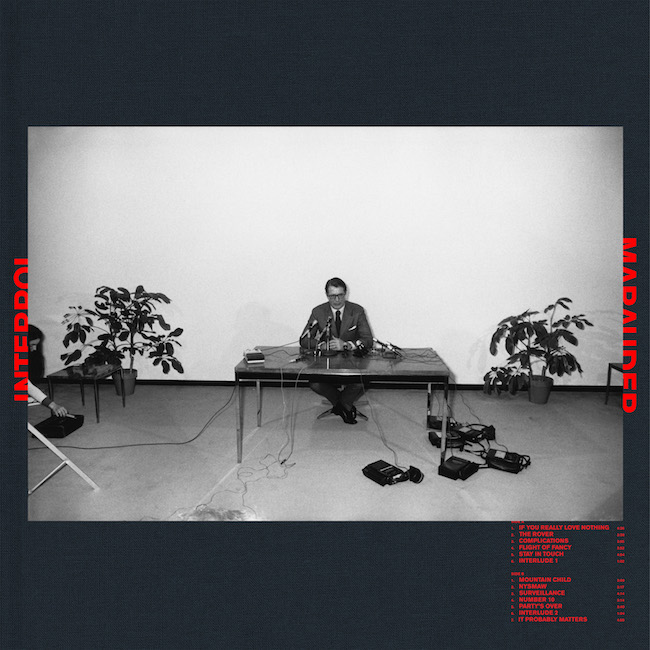
For 16 years, we’ve all known what to expect from Interpol, and the band’s latest album Marauder doesn’t radically diverge from that template. They’re still writing dark-hued post-punk songs with sneaky-funny absurdist lyrics. They’re still running at either a fast mid-tempo or a slow mid-tempo. They still wear incredible suits. But what’s impressive this time around is how much fun these guys — still a trio, because why bother replacing Carlos D? — still seem to have at finding new ways to explore the surprisingly resplendent contours of mopey goth-dude pop-rock.
This is, in a sense, a back-to-basics record: While Interpol is known for making pristine-sounding albums at a deliberate pace, Marauder was recorded live to tape, capturing the band at its rawest and sweatiest. (Relatively speaking, of course — those suits remain immaculate.) This feistiness provides a welcome edge to the ringing guitar and monotone vocals that are endemic to Interpol songs, underscoring the secret to the band’s enduring success — their vibrant, in-concert energy. Oh, and Marauder wouldn’t be a standout late-period Interpol album without some off-the-wall (and highly quotable) lyrics. (From “Party’s Over”: “Rock n’ roll b*tch I’m into it / I like to show you my stuff / Baby cheetahs the Himalayas / What’s got you startled umbilical.”)–Steven Hyden
43. Drake, Scorpion
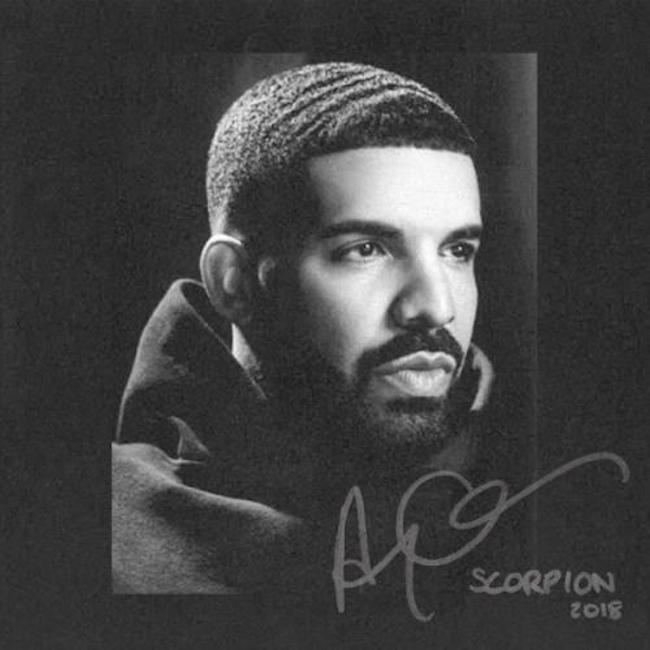
I don’t know if “Drake fatigue” is a real thing, especially given the enduring, inescapable catchiness of “In My Feelings,” with its accompanying viral dance challenge and hilariously convoluted conspiracy theories. And, I might be a little more optimistic on that front than most, seeing subtle hints of creative growth on his mega-sized double album, Scorpion. After all, his empowerment anthems like “Nice For What” and “God’s Plan” were accompanied by suitably reflective, uplifting music videos courtesy of rookie video director Karena Evans. He spoke to his son on the introspective “March 14,” which turned out to be as personal a risk as creative. And in the album’s lighter moments, he seemed like he might finally be enjoying the trappings of fame, shedding the “suffering from success” demeanor of his Take Care album cover. Scorpion had some of the biggest moments of Drake’s career, and after a decade in the game — and almost half that time at the top — it’s impressive to think that, like the fine wines he’s so enamored with drinking, he’s still getting better with age.–A.W.
42. Charlie Puth, Voicenotes
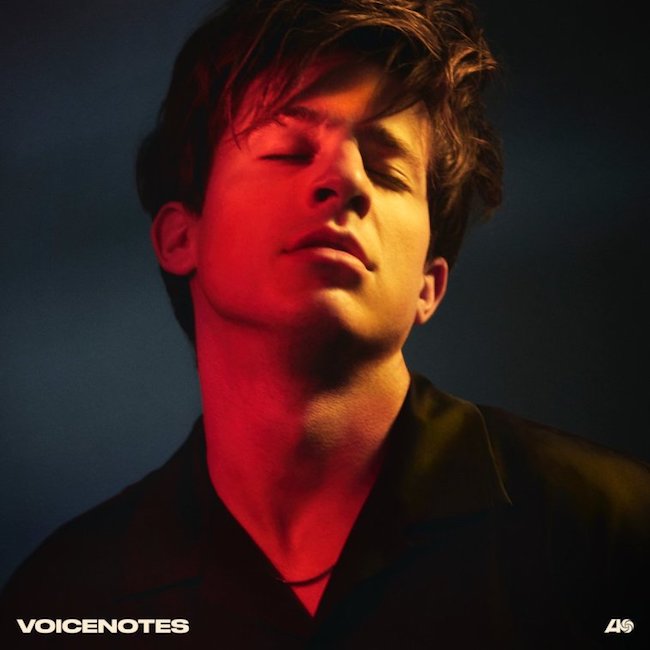
Has anyone pulled off as epic of a rebranding in 2018 as Charlie Puth? Prior to this year, the “See You Again” singer made headlines for the ridiculous quotes he gave journalists (“I’m hungies!”) and his romantic exploits (Bella Thorne and Selena Gomez, though Selena tells a different story). But this year, Puth proved he’s “hungies” for more than just tabloid attention.
Voicenotes is a runaway critical smash. From the synths on “LA Girls” to the snaking bassline of “Attention,” every song on the album is immaculately crafted. Though Puth dips in and out of about a million genres — he has features from Boyz II Men and James Taylor, another “See You Again”-style weepie, and some yacht rock bangers — the album is also cohesive as a whole. Listening to Voicenotes, you get the impression that Puth is more confident than ever in who he is as an artist. For anyone who is still too distracted by Puth’s public image to open yourself up to his earworm bops, the man has some words for you: “You could either hate me or love me / But that’s just the way I am.”–Chloe Gilke
41. Lucy Dacus, Historian
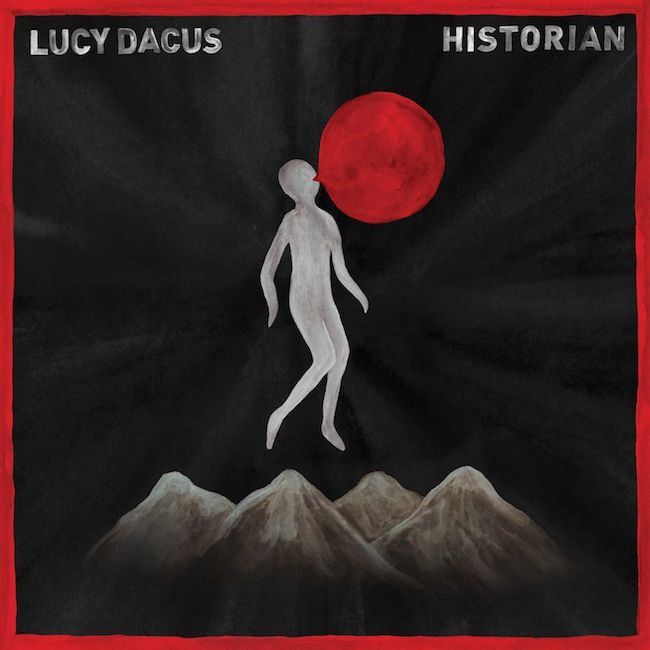
The first time I heard the title track on Lucy Dacus’ Historian, I remember thinking lovingly about one of my closest friends, and then thinking about how lucky I felt to have someone in my life that came immediately to mind. “I’ll be your historian and you’ll be mine,” Dacus sings, over crescendoing synths. “And I’ll fill pages of scribbled ink, hoping the words carry meaning.”
Historian has been out since March, which feels like a number of eternities ago, but each song still rings just as poignant. Dacus doesn’t spend much time here pining over fleeting romances, perhaps because she knows that she doesn’t have much time to spend at all. Listening through the album feels like flipping through Dacus’ old journals, witnessing her experience moments of extreme rage to utter triumph to cutting pain. The record reminds us that really, all we have are our memories and what we make of them, and so we might as well write our own histories.–Leah Lu
40. Post Malone, Beerbongs And Bentleys
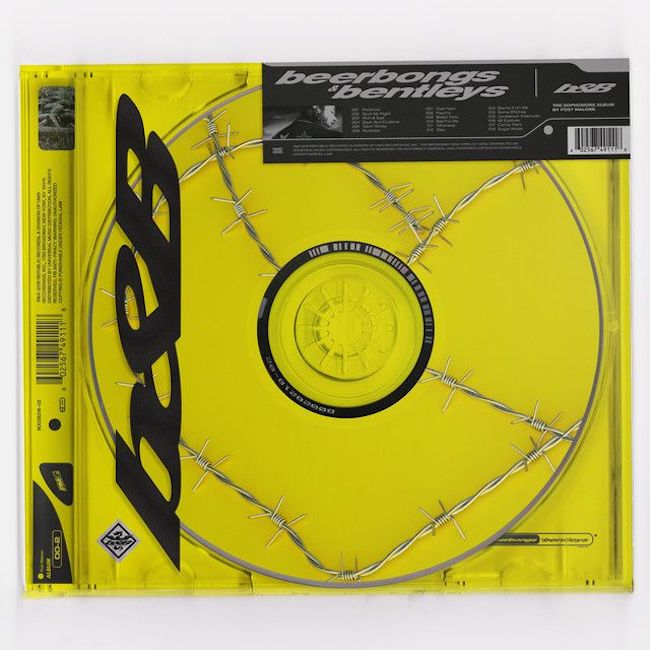
Post Malone’s Beerbongs And Bentleys is the Texas artist follow-up album to his No. 1 debut Stoney, and at the time of his new album’s release, his first record was still on the Billboard charts. Knowing this, it should come as no surprise that his second album entered the Billboard 200 at No. 1, broke streaming records, and garnered over 40 million US streams on Spotify within 24 hours. The double-platinum sophomore album from Posty is also home to his first No. 1 song, “Rockstar” featuring 21 Savage, followed up by his next No. 1, “Psycho,” featuring Grammy Award-winning recording artist Ty Dolla Sign.
Beerbongs And Bentleys is mostly carried by prominent features and A-1 production from Post Malone himself, Tank God, PartyNextDoor and London On Da Track. Although Post insists on separating his sound from hip-hop, it’s his adoption of the infectious trap-style triplet flow and harmonizing that makes the record worthy of repeat listens. And on his solo tracks — “Over” and “Stay” — he flexes impressive guitar playing skills. Filled with 18 spacey-sounding songs, Beerbongs And Bentleys thrives off fan popularity and doesn’t miss a beat.–Cherise Johnson
39. Mitski, Be The Cowboy
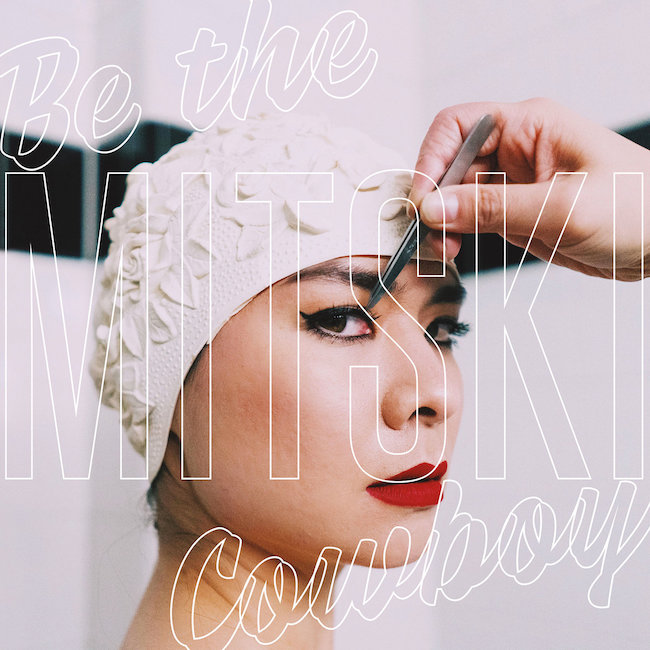
No one sings of devotion quite like Mitski Miyawaki. On Be The Cowboy, Mitski’s iconic and woozy fifth record, that devotion isn’t quite pointed at any one thing in particular. She’s not asking for much at all; even some mild lip-action will do. “Somebody kiss me, I’m going crazy,” she laments on “Blue Light.”
There’s no way to deny the loneliness that permeates Mitski’s songwriting on the 14-track slate, but she’s not exposing it with the intent of seeking sympathy – “I don’t want your pity,” she says outright on “Nobody,” arguably Be The Cowboy’s danciest and most pathetically relatable anthem. Instead, she’s purging it so that she can turn precisely into the thing she feels like she’s lonesome for — it’s what the album’s name implies, after all. In an interview with NPR earlier this year, Mitski attributed the record’s title to an old college friend she admired for the electric “cowboy swagger” he’d exude onstage: “Well, then if I wanna see it live then I should just be that cowboy, I should just be the thing that I admire.” On this album, she exudes enough swagger for all us wanna-be cowboys, and then some.–L.L.
38. Lykke Li, So Sad So Sexy
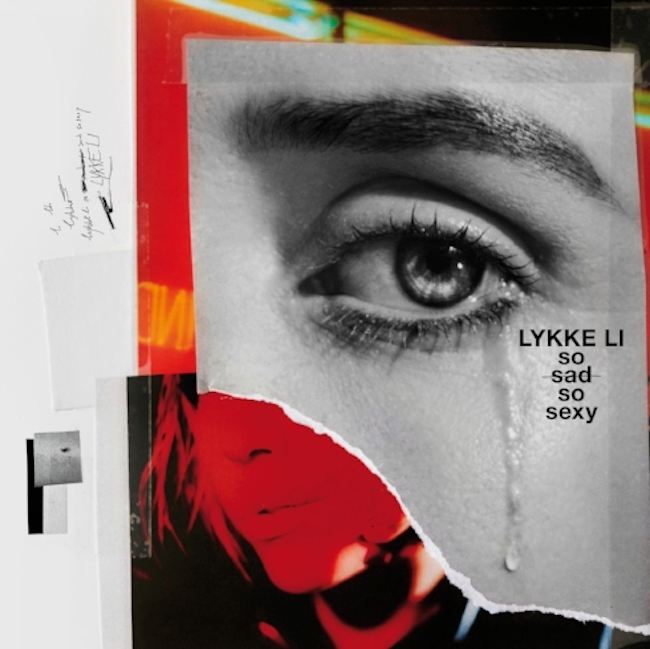
Lykke Li’s most defining characteristic is her unpredictability. Following a debut album that carried a hue of youthful innocence, her follow-up record found her declaring herself a prostitute on “Get Some.” Then for I Never Learn, a moment that seemed ripe for her ascending to the pop throne instead manifested itself as a Phil Spector-influenced record of weepy torch songs, a breakup album to rule over all other breakup albums. The only thing that felt expected about this year’s So Sad So Sexy was really the title, which got to the very core of what Lykke Li represents.
Well, actually that’s only half true. The other throughline you can draw in the work of Lykke Li is the continuous high quality. In 2018, it’s a little more hip-hop and trap influenced, a little smokier and distant, a little more weathered from past heartbreaks. It’s also her first album since becoming a mother, which manifests in the open-hearted anthem, “Utopia.” But be it in the gut-wrenching despair of “Last Piece” or the Aminé-featuring betrayal of “Two Nights,” So Sad So Sexy is another captivating chapter from a pop music chameleon who has found success down every dark alley she’s searched.–Philip Cosores
37. Foxing, Nearer My God
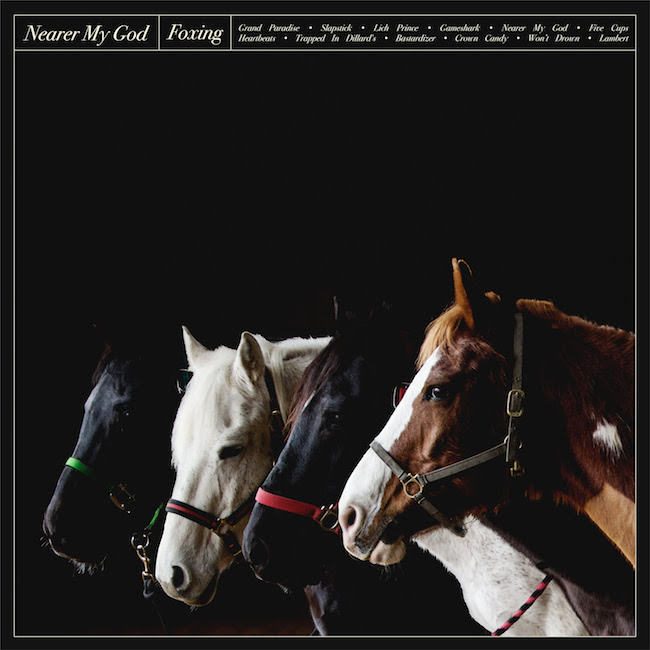
This St. Louis emo band’s breakout album, Nearer My God,- doesn’t play by the rules of normal indie records, where humility is valued and wanton displays of ambition and artistic audaciousness are discouraged. In interviews, the band members talked openly about wanting to make their version of OK Computer, a grand statement that goes down in modern music history. While Nearer My God doesn’t quite hit that wildly elevated mark, it is one of the most satisfyingly “epic” indie releases of recent years, taking Foxing’s guitar-based songs and blowing them out with electro-R&B swagger.
While Foxing is primarily known in the underground punk scene for their energetic, near-messianic live shows, Nearer My God was the product of almost two years of studio experimentation, in which songs were put together, taken apart, and then reassembled (and then often taken apart and reassembled several more times). This resulted in thoroughly unexpected stylistic diversions like “Heartbeats,” which sounds more like M83 than The Hotelier, and the luminous “Grand Paradise,” in which punk guitars provide spiky counterpoint to Conor Murphy’s delicate falsetto. (Frank Ocean’s Blonde was a pivotal influence on Foxing during the making of Nearer My God.) In the end, it still sounds like rock music, but the wonder of Nearer My God is seeing Foxing expand the definition of rock to suit its own idiosyncratic purposes.–S.H.
36. The Carters, Everything Is Love
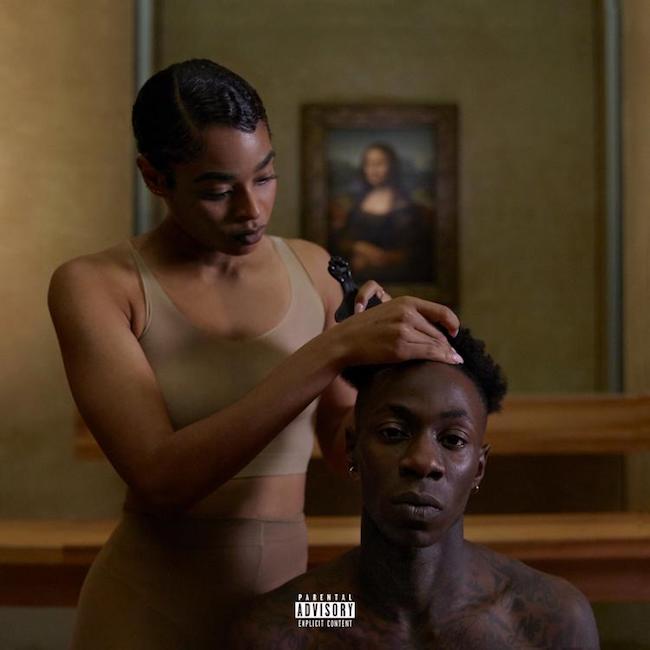
Jay-Z and Beyonce as The Carters presented their surprise album Everything Is Love as the ultimate ode to Black love and partnership. It’s not rare to hear Jigga rap about Black Excellence and championing the idea of keeping money within the community, and on Everything Is Love, Jay takes Bey along for the ride as she offers her impeccable Houston swagger and vocals echoing those same sentiments.
Everything is put on the table as they not only address personal struggles on the album — and that infamous elevator incident — they sing and rap about how they got through the good times and bad. “Summer” is the album’s jazzy, smooth introductory track heralding the notion of affection and appreciation between the married couple. The album’s lead single, “Apesh*t,” is quite the opposite — a hard-hitting, boastful trap song featuring recognizable inflections and ad-libs from Migos’ Quavo, who happened to help to write the Mike Will Made-It-produced song. As a couple, they initiate the “Apesh*t” with demands of getting their respect. Jay himself commands to be paid in equity for his art and brags about denying requests to perform at the Super Bowl. Everything Is Love‘s other tracks such as “Boss,” “713,” and “Friends,” continue to tell The Carters’ story as they want to tell it — through great production and catchy hooks. This is what love and war sounds like.–C.J.
35. Wild Pink, Yolk In The Fur
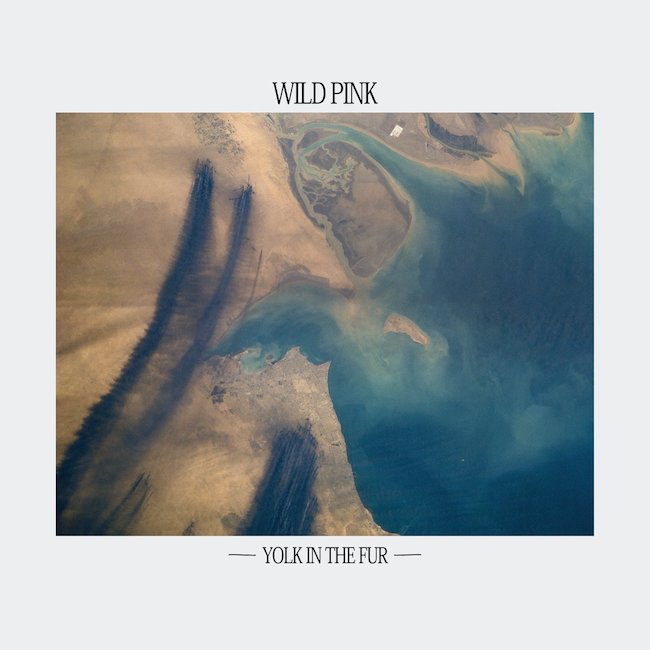
“I just really wanted to make something bigger in scope,” Wild Pink’s John Ross previously told Uproxx. “I think that obviously, ’70s rock is the heyday of rock and those records are enormous […] making more interesting textures and sound palettes or whatever, that’s becoming way more important to me.” There’s no questioning that Ross achieved a sizable sound on his newest Wild Pink record. The album opens with “Burger Hill,” a meditative track that keeps things tranquil and sets the stage for “Lake Erie,” a song that quickly blooms into a vintage-sounding, alt-country- and heartland rock-influenced atmosphere that seems as big as the titular body of water. It’s a challenge to sound classic without coming across as overly nostalgic, but that’s what Yolk In The Fur achieves: It borrows from a different time but is also timeless. It’s a breath of uncommonly fresh air that has ultimately established Wild Pink as not only a band on the rise, but an indie group that already has a damn fine record in its arsenal.–D.R.
34. Leon Bridges, Good Thing
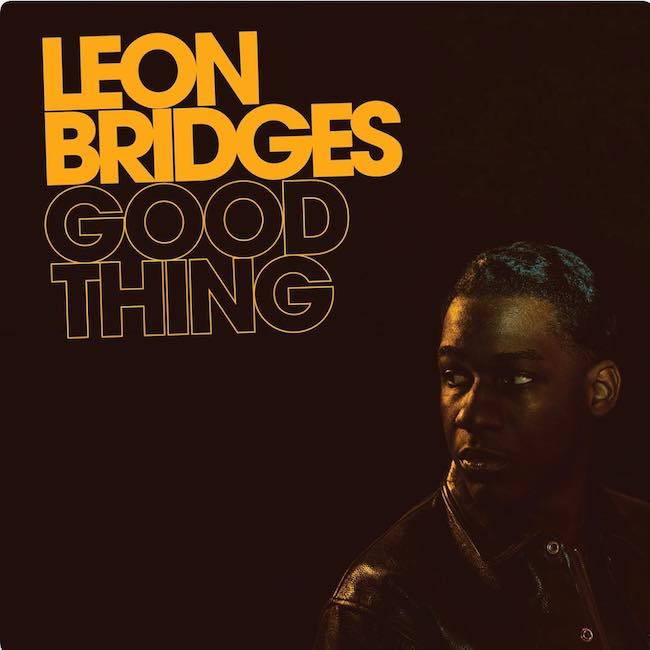
Leon Bridges‘ 2015 debut Coming Home was a stellar slice of reflective, throwback soul, like Sam Cooke preserved in amber and revived by the scientists from Jurassic Park. But, it also ran the risk of potentially pigeonholing the soulful Texan crooner. Fortunately, he took enough time off to live and evolve as an artist before returning, opening up his palette of styles and genres for his follow up, Good Thing, a transformative neo-soul masterpiece that more than lives up to its title.
Rather than sticking to the blueprint of husky, pioneering singers like Cooke and becoming nothing more than a gifted imitator, Leon steps into his own as a visionary innovator, incorporating blues country (“Beyond,” “Mrs.”), hip-hop (“Shy”), and even disco (“If It Feels Good”) to stretch and expand the definition of the spaces his smoky vocals can fill up. Bridges makes the transition from eye-and-ear-catching novelty to bonafide pop star, delivering “Bad Bad News” and assuring the listener that the “Bet Ain’t Worth The Hand” on head-nodding, toe-tapping bops and transcendent ballads. Good Thing is warm and comforting like home cooking, but it’s also worldly and expansive, building on the foundations laid by Coming Home to show that Leon is capable of great things as he grows as an artist and as a man.–A.W.
33. Snail Mail, Lush
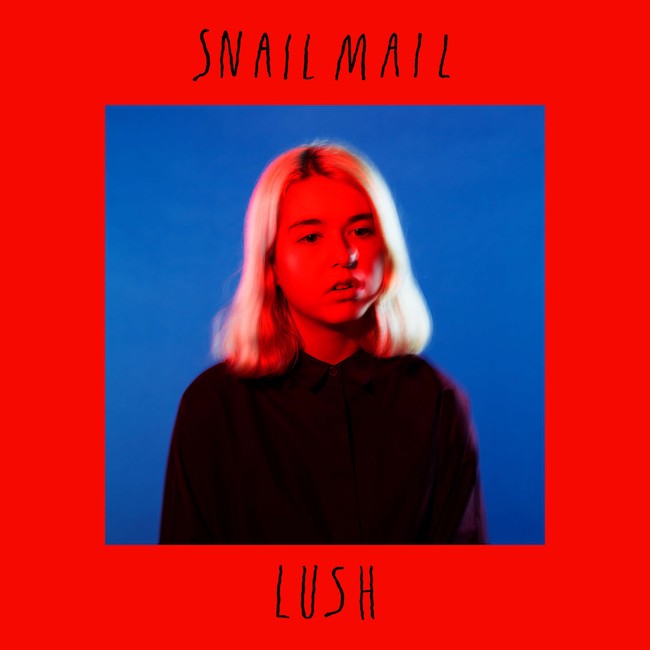
Snail Mail’s debut album Lush graced us right at the beginning of a muggy, thick-with-desire, slow burn of a summer. “I’m so tired of moving on / spending every weekend so far gone,” Lindsey Jordan snarls on “Heat Wave,” a track saturated with angst and bare-bones longing. “Heat wave, nothing to do / Woke up in my clothes having dreamt of you.” Then the shredding guitar kicks in, signaling a descent into the level of infatuation where we finally, maybe somewhat pathetically, admit that we’re in deep. Jordan is only 19, but her songwriting has the type of brash wittiness that captures what it feels like to have a crush at any age. Jordan has gripping control over her voice and instrumentalism (she’s taken guitar lessons from Mary Timony of Helium), but she’s also got a stabilizing, tight-lipped charge over her emotions — Lush showcases a pristine, youthful handling of heartbreak, hiding close to nothing.–L.L.
32. Phosphorescent, C’est La Vie
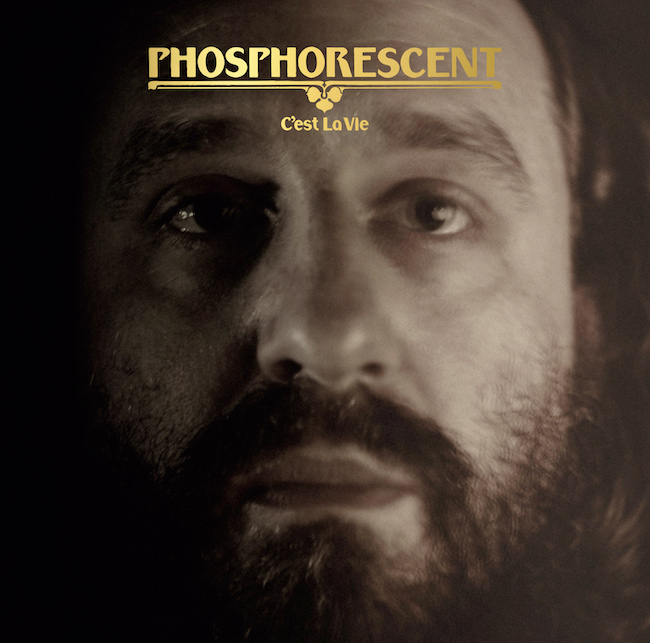
After a five year hiatus from releasing new music, plenty of artists struggle to get back into the groove. Yet, on C’est La Vie, Matthew Houck and his revolving cast of musicians seem to have settled deeper into their preferred patterns as Phosphorescent than ever before. In the past half decade, Houck, along with his fellow band member and now-wife, Jo Schornikow, moved to Nashville and welcomed two children into their family, so there are plenty of songs filled with love and tenderness on the record.
But, there are also far-reaching tracks about the impact of time and age on a person (“C’est La Vie No. 2”), meditations on travel and foreign countries (“Christmas Down Under”), celebratory jingles that slyly, playfully embrace the trappings of fame (“New Birth In New England”), and a backward-glancing slow burners that reflect on just how quickly and easily things can change. And despite the time that’s passed, or how much things may have changed in his personal life, Houck and his band are still creating some of the most inventive and intelligent gossamer psych-folk that can be found anywhere in the world. While everyone else is concerned with measuring the change, this is a record that is content to sit and let it come, wave upon wave.–C.W.
31. Cat Power, Wanderer
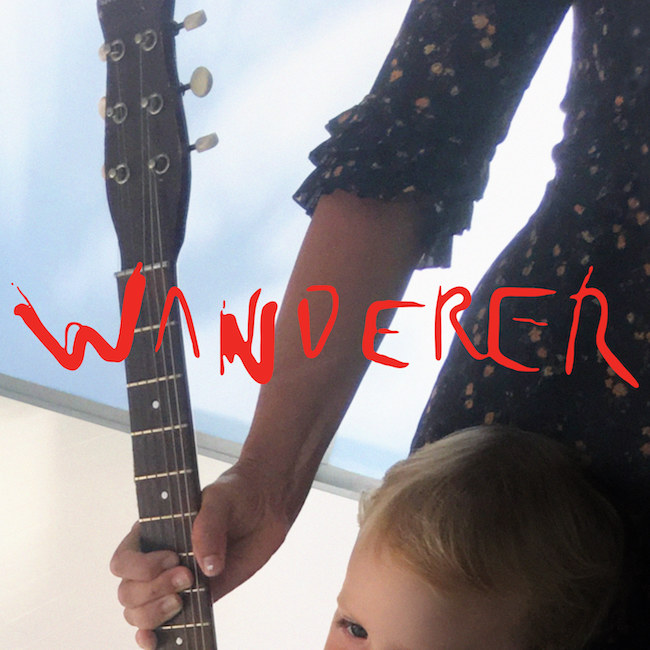
When Chan Marshall, the mercurial songwriter who has delivered a number of indie classics as Cat Power, delivered her latest album to Matador Records, the story goes that there was some dispute about what it should sound like. “They said, do it again, do it over,” she told The New York Times, saying that the label was looking for hits and wanting her to sound more like Adele. It’s a baffling bit of feedback for anyone familiar with Cat Power, knowing that arena-level pop stardom was never in the cards, and it resulted in her leaving the label that had been her home for almost her entire career.
But listening to Wanderer, it’s a godsend that Marshall stuck to her guns and made the album that she wanted. It has some particularly trademark moments, including a cover of Rihanna’s “Stay” that falls perfectly in line with a tradition of reworkings of ubiquitous classics that she is largely known for. And, on the album’s closest thing to a potential hit, “Woman,” Lana Del Rey pops up for backup vocals to showcase how far-reaching Marshall’s influence is. But tying the album together is the song “Horizon,” a meditative and gorgeous vision that somehow has elements evoking both Nick Cave and Travis Scott. It showcases Marshall’s ability to draw from the pop canon while maintaining a distinctly contemporary bent, something that will never translate to Adele-level notoriety, but has carved out a rewarding and always laudable career for Cat Power.–P.C.
30. Grouper, Grid Of Points

As Grouper, Liz Harris has been able to create a world that dwells in the grey so many of us call home. Grid Of Points, her eleventh album, is as delicate as a stained glass window, and diffuses the light in a similar way, drawing in muted, elegiac tones that lend her music a sense of reverence. Though it is by no means religious, Grouper’s music is spiritual. Spiritual, in that it is concerned with the spirit; barely registering lyrics lilt above melodies that the listener feels deep inside their body, below the bones and skin, where the soul resides, maybe.
Working over the span of just a week and a half, Harris layered austere piano melodies and porous vocal harmonies across seven tracks, which take up just 22 minutes. Yet, the resulting sparse record still registers as one of the fullest, most complete expressions of the year. In a world of overstuffed, deluxe versions, bonus tracks, and remastered artifacts, Grid Of Points affirms the need for negative space, the need for brevity, the preciousness of simplicity. It is a record full of grey, unyielding light, and an argument that not all lightness need be bright.–C.W.
29. Amen Dunes, Freedom
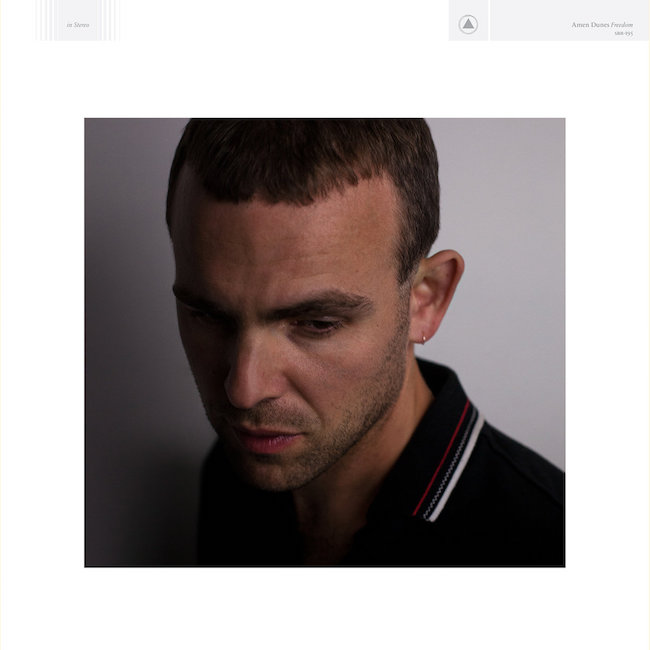
With Freedom, Damon McMahon pivoted away from the freak folk of previous Amen Dunes records and toward a sound influenced, in his words, by “really, really good mainstream music,” including Nirvana, Oasis, Tom Petty, and Aphex Twin. Freedom doesn’t sound like any of those artists, exactly, though you can recognize a common impulse to connect with music that’s a little more visceral and immediate. Working with the guitarist Delicate Steve, McMahon builds anthemic songs out of insistent, wiry guitars and relentless, motorik beats. While McMahon’s gaze remains fixated on the stars, Freedom isn’t a dreamy or torpid — the songs are always moving toward rousing climaxes, especially on the album highlight “Believe,” which builds from a murmur to a wave of Delicate Steve’s Edge-like guitar arpeggios. Freedom overall is grounded in ’80s radio rock. (The guitar-driven coda for the title track sounds almost exactly like the riff from Bryan Adams’ “Run To You.”) But McMahon is able to evoke the populist power of that music without slavishly imitating it. The result is an album that seems to already reside in your subconscious even as you’re hearing it for the first time.–S.H.
28. Mick Jenkins, Pieces Of A Man
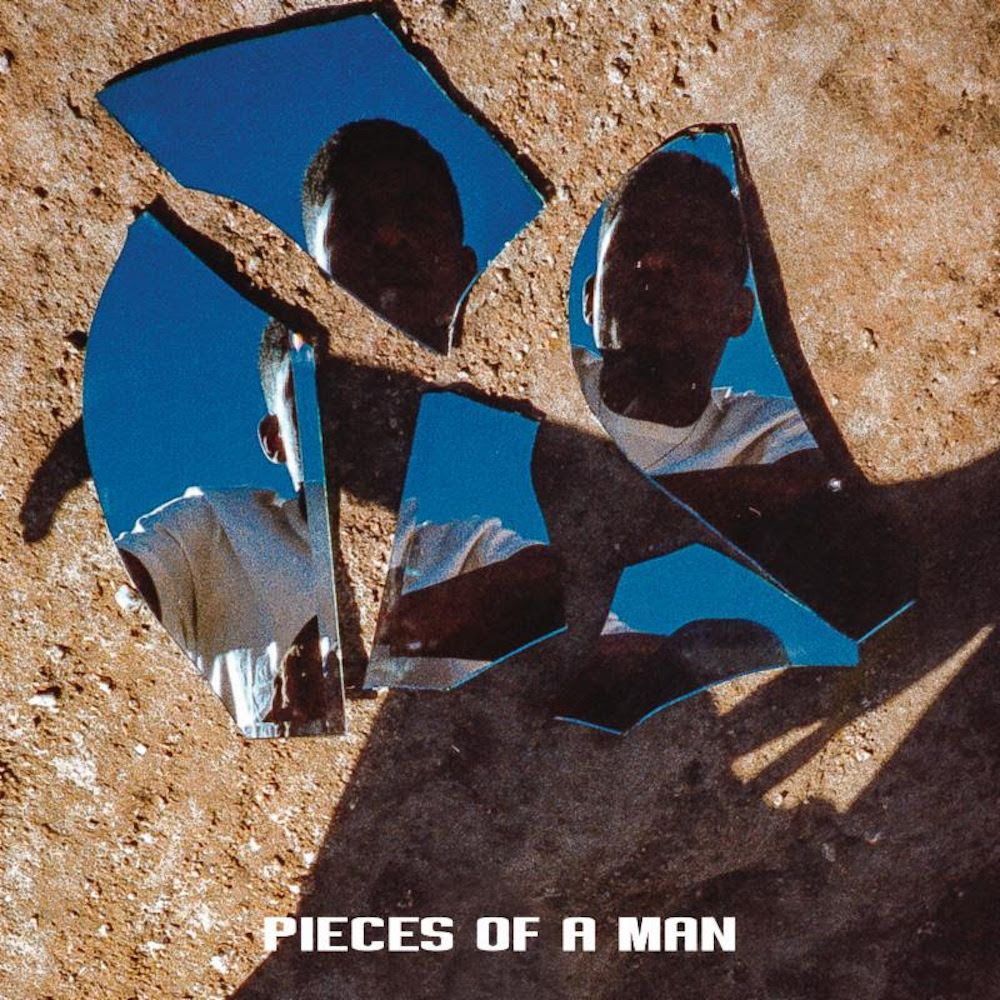
Manhood, especially manhood as defined by the narrow scope allotted to it by the established tenets of hip-hop culture and rap music, is a funny thing. It’s funny in its peculiarity and its complexity, tangled and pinned to old ideas and new in constant conversation with one another — or in conflict. Maybe that’s what makes Mick Jenkins’ 16-song exploration of manhood so densely layered and engaging. Pieces Of A Man is mazelike and challenging as Mick wrestles with the implications of being a man — a Black man, a young man, an enlightened man — in hip-hop and the wider world, which often holds its own expectations and restrictions for us to confront, defy, work within, and struggle against.
Mick co-opts poet Gwendolyn Brooks on the calmly surveying “Gwendolyn’s Apprehension,” contemplates image and perception on “Plain Clothes,” and weighs the implications of America’s current crisis of conscience regarding men’s role in women’s traumas on “Consensual Seduction.” Throughout, he remains wittily ambivalent, consciously and carefully turning over each issue with the lyrical deftness and depth prerequisite to tackle such weighty subjects. He may not come to many conclusions by the end of the album, but perhaps that’s the point. Manhood is ever evolving; the minute you think you have it all figured it out, you’ve already been left behind.–A.W.
27. Jon Hopkins, Singularity
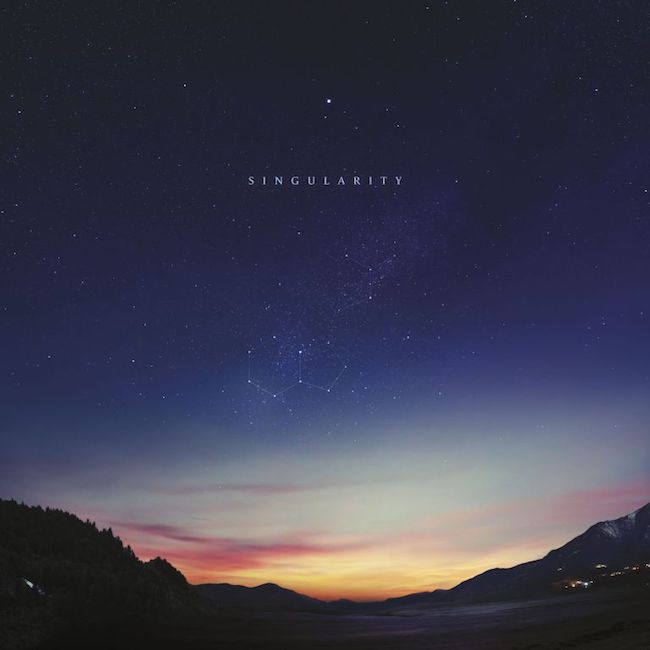
The goal of a lot of music is to tell a story, and a song can get a message across without a single spoken phrase. “I kind of see the arc of all five of my albums telling a continuing story,” Jon Hopkins previously told Uproxx. “Obviously that makes more sense to me, because they tie in directly to my own experiences and my own kind of evolution, but I think each one to me is very much the next part of the story, whatever the story may be.” And that story is continued on Singularity, his best album to date.
Stories are told because they’re the way we can best communicate a series of events or a moral message through spoken language. But sometimes, thoughts and feelings are too abstract to put into words, and that’s where Hopkins’ instrumental soundscapes can have an advantage over lyrical music. The album-opening title track, for example, evokes a sense of adventure and beginning better than poetic musings could. Alison Krauss may as well have been talking about Hopkins’ control over aural environments when she sang, “You say it best when you say nothing at all.”–D.R.
26. Oneohtrix Point Never, Age Of
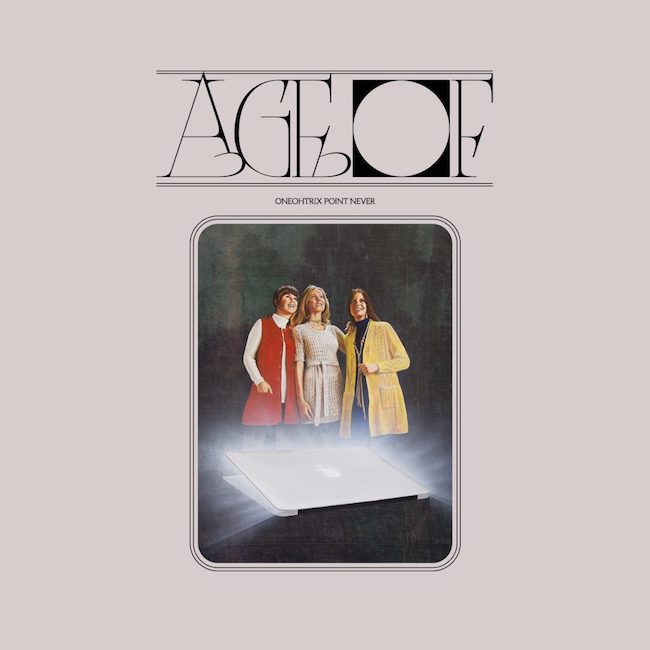
Oneohtrix Point Never, AKA Daniel Lopatin, already has a career’s worth of experimentation under his belt, and even though “experimental” and synonyms thereof are among the predominant words used when describing his sound, he really expanded upon that in significant ways on his latest, Age Of. For one, he decided to prominently feature his own vocals on the record, something he hasn’t really done before, and it works out well. A notable example is “Babylon,” which comes across like a lovelorn Drake song put through an Aphex Twin filter: It’s off-kilter, but ultimately defined by its emotional core.
Lopatin has also tended to base his records on a genre, mood, or idea as a springboard into his creative explorations, although it’s hard to pin down a central theme on Age Of, because apparently, we’re in an age of a lot of different influences. “Same” is like a warped Björk song, “The Station” has a Latin flair to it, “Manifold” is a lovely little piano track with some synths for good measure, “Black Snow” is a sort of synthwave ballad, and the list goes on. Lopatin isn’t one to run in place, instead jogging through entire neighborhoods and even neighboring communities on his most ambitious record to date.–D.R.
25. Haley Heynderickx, I Need To Start A Garden
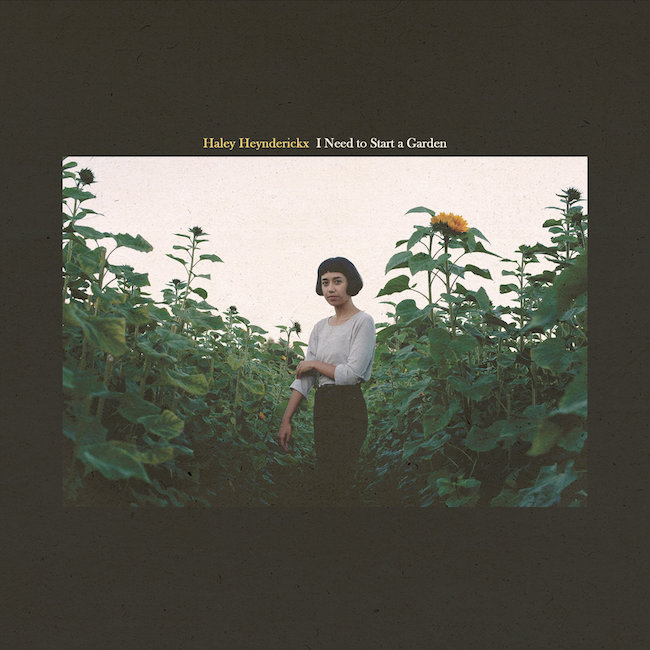
Portland’s Haley Heynderickx knows that growth is no breezy task, but rather one that requires the dirty work of thorough pruning and patience. Her debut album is aptly named, then; I Need To Start A Garden as a declaration feels loaded with steely conviction. And Heynderickx has had quite the blossoming year, with a career kickstart from her own NPR Tiny Desk, an inaugural record release, and recent recognition from Stereogum as one of 2018’s best new artists.
Her success has been rightfully lauded – Heynderickx’s music is tantalizing and challenging, lyrics rife with stunning imagery that’s been compared to notable predecessors like Elliott Smith and Vashti Bunyan. On multiple of the album’s tracks, Heynderickx has a tendency to ruminate over certain lines, reciting them over and over again in a trance-like effort to remember. In the closing of “Show You A Body,” her lilting voice emerges from a muddled instrumental interlude to the sound of airy windchimes, like she’s taking a breath for the first time – “I am humbled by breaking down,” she repeats, and it feels like rebirth.–L.L.
24. Spiritualized, And Nothing Hurt
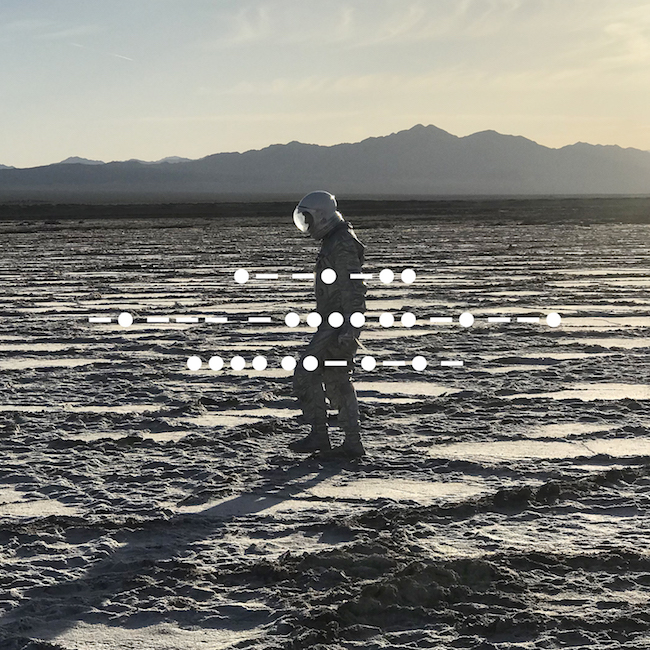
Great art often hurts. Not just to listen to, but to create. That’s what makes Spiritualized’s Vonnegut-referencing album title a bit of a misdirection, because while maybe the pain subsides once the album is out in the world, from all reports, creating And Nothing Hurt was a taxing, nearly destructive process for Jason Pierce. He recorded most of the thing without a band, holed up in his home and in studios trying to make one person sound like dozens. It was such a process that after its completion, and even during the process, he claimed that it might be the last time he would put himself through it. Everything he has is right there spinning on the record, with nothing held back and saved for later.
The resulting album is something that stands up to a career of classics, where the pop music canon is consumed and shuffled and made new. Pierce’s toughest critic is himself because he desires this music to stand up to the music he’s inspired by, which just happens to be the best rock, blues, and soul ever created. And Nothing Hurts is a labor of love that feels like a gift on every listen, the orchestral swells reaching for the rafters and Pierce’s own weathered, broken voice tying things together with striking beauty. If this is indeed the last Spiritualized album, it’s a swan song of the highest order.–P.C.
23. Boygenius, Boygenius
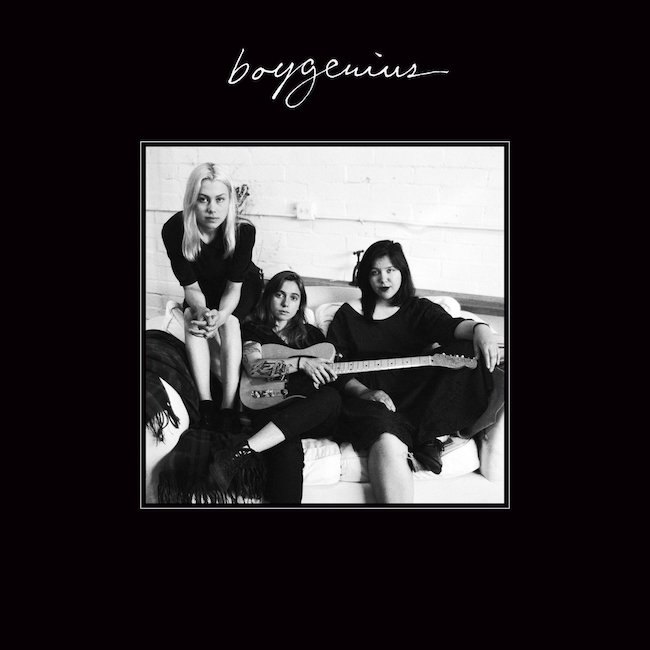
Julien Baker, Phoebe Bridgers, and Lucy Dacus want to be on a spaceship, traveling far away from their bodies and the earthly struggle to try and be heard. They want to “dissolve the band, move to Idaho,” blast their heartbreak into the sky, and repent enough to quiet a “difficult mind.” Put together, the three young singers echo one another’s desires and demands for something better, amplifying their voices larger than life and straight into outer space.
Boygenius is a confrontational, teeth-gnashing record, louder in six songs than most artists can get in 12 or 15. Their lyrics are piercing — we’ve come to expect that by now, since Baker, Bridgers, and Dacus are three of the biggest indie breakouts of the past few years, and we’ve seen their genius in their solo work. As a collective, though, they’re earth-shattering, and they’re unstoppable.–C.G.
22. DJ Koze, Knock Knock
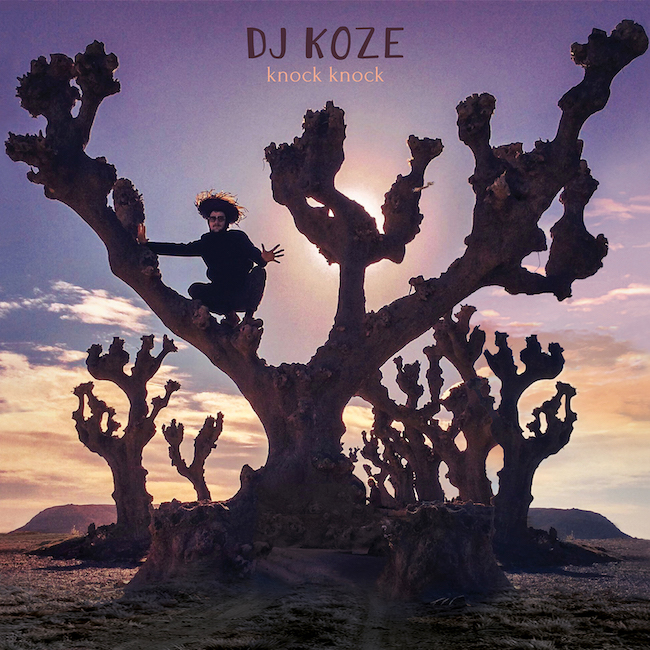
If DJ Koze (AKA Stefan Kozalla) sounds confident, it’s because he’s been around the block plenty of times before. He first got involved with DJ-ing and production in the late ’80s, when he was a teenager. He’s been active ever since, and it’s all led up to Knock Knock, his first full-length since 2013’s Amygdala. It would be fair to think that somebody who’s been involved with electronic music for as long as DJ Koze has might start to tire of it, but he previously told Uproxx that club music still excites him, saying, “I just try to concentrate on the positive and that still fascinates and electrifies me. When I hear a mysteriously good track, it gives me this fire.”
That passion shines through on Knock Knock, where he finds highlights within relative simplicity. The production is often tight and uncomplicated, and Koze uses his collaborators as instruments… quite literally with “Music On My Teeth,” on which José González contributes guitar to the sunny track. Knock Knock is a record that’s focused and, even though it runs nearly 80 minutes, not over-long, two boxes that electronic music is often unable to check off, but ones that Koze and his wisdom were able to pull off without any significant stumbles.–D.R.
21. Nipsey Hussle, Victory Lap
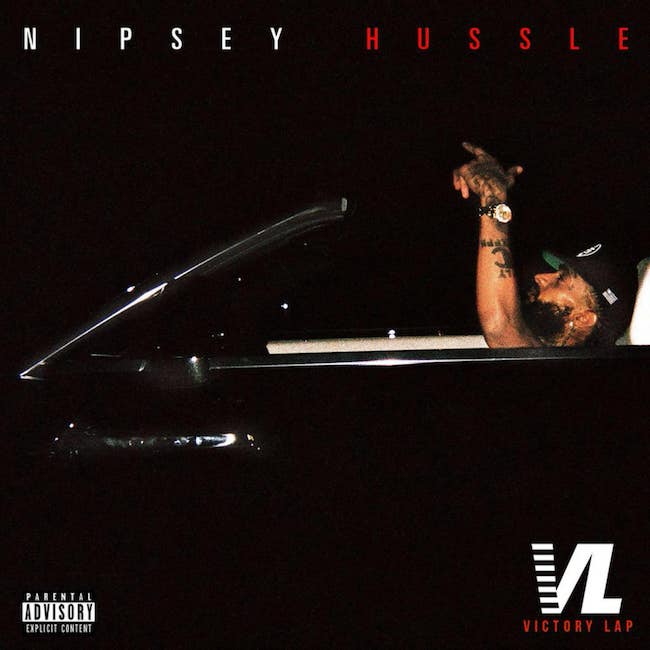
Nipsey Hussle was an independent stalwart, well-respected for exploits like making $60,000 off of his $1,000 album package. He showed how rewarding it could be to do right by the self. That’s why some people wondered what was up when he signed to Atlantic – but Neighborhood Nip was too smart for any label to get the best of him. He did exactly what he wanted with his latest album Victory Lap and simply invited Atlantic to the table to help his play. The album, true to the title, is a culmination of his grind and exemplifies that you shouldn’t automatically ignore major labels – if you can sign on your terms.
Victory Lap isn’t merely self-aggrandizing , as he kicks the kind of “Hussle And Motivate” energy that harkens to prime Jeezy. He and YG unite the colors and lay out their resume on “Last Time That I Checc’d,” and on “Blue Laces 2,” he’s dropping knowledge and telling us how he came from nothing. He and Kendrick Lamar chronicle their “Dedication” to the game that paid off for both of them. Nipsey even got Diddy to invigorate “Young N—-s” with the kind of motivational presence he’s known for. On Victory Lap, Nipsey gives us compelling glimpses of his against-all-odds grind and shares his triumphs to motivate the youngins.–A.G.
20. Camila Cabello, Camila
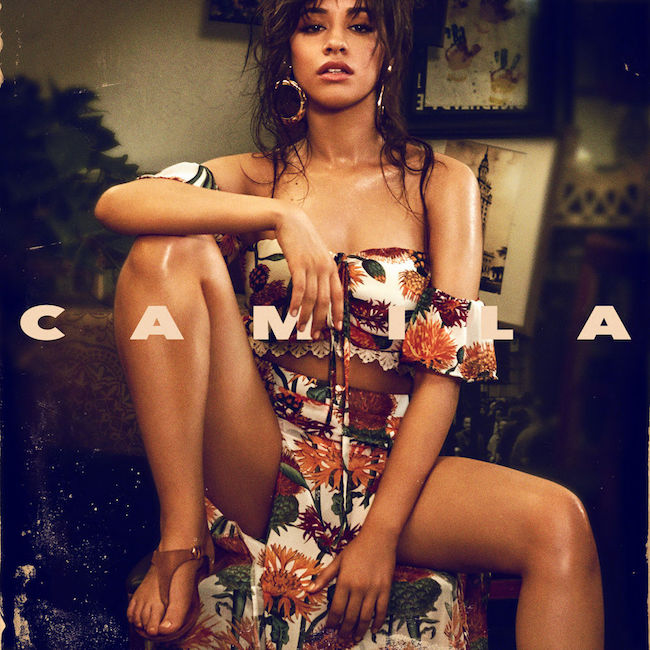
Camila Cabello is “emo.” When I saw her at ACL Festival this fall, Cabello must have described herself as “emo” half a dozen times, joking around with the hyped-up crowd before she made them cry with her (pretty emo) performance of “Consequences.”
Like her more punk-leaning emo brethren, Cabello feels things deeply, and has a sensitive, observational heart. When she’s in love, like on “Never Be The Same,” it’s rapturous. When her heart is broken, you can hear every ache through her vocal runs. Her emotion is big and dramatic, beautifully outsized even for pop, a genre that’s not known for its subtlety. Cabello doesn’t just have a crush — half of her heart is in “Havana.” She compares the hit of affection from her lover to “nicotine, heroin, morphine.” At a time when a lot of mainstream pop is getting quieter and more introspective, Cabello is here to remind us that there’s catharsis and power in belting your feelings. Call her bubblegum pop, call her emo. Whatever you call her, she’s genius.–C.G.
19. Pusha T, Daytona
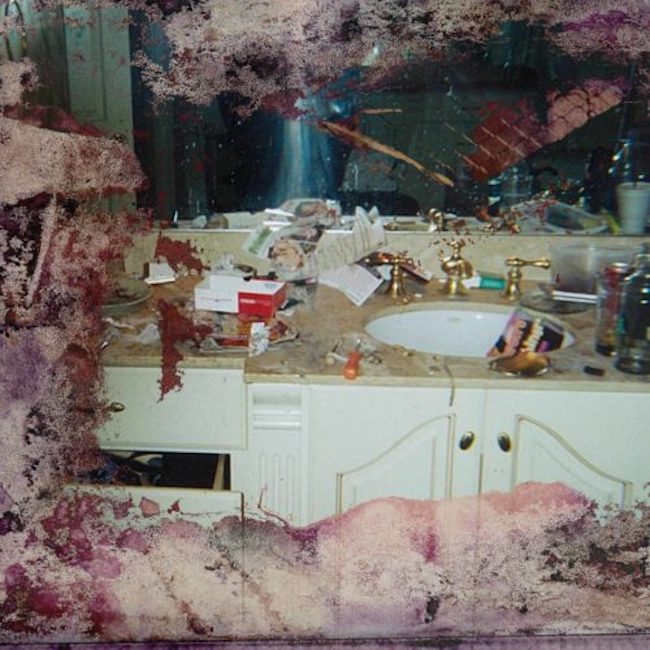
Pusha T’s Daytona kicked off the GOOD June of Kanye West-produced releases in raw fashion. The game hadn’t heard from Push in three years, and he rewarded our patience with thrilling pyrex poetics. Drake shots on “Infrared” aside, Pusha served us a hell of a lot of other quotables in just 21 minutes. Those who gripe that he only raps about drugs are ungrateful — because he consistently does it better than anyone alive at this juncture.
“If you know, you know.” From the moment that intro track begins Daytona, Pusha put us in the zone. It’s not just that clever lines like “we got the tennis balls for the wrong sport” deliver a rush of realism that’s unparalleled by other drug-oriented rhymers, he’s doing it while out-rapping the competition and delivering the 360 experience of the lifestyle. He’s flashy on “The Games We Play.” He’s pensive on “Santeria.” He brags about his simultaneous superiority on both the block and the booth on “Come Back Baby.” And he still gave us potent commentary on the rap game throughout “Infrared.” The combination of his imagery-rich lyricism, sharp wordplay, and Kanye’s arresting samples are undeniable. Daytona is simply one of the most polished displays of MC-ing this year.–A.G.
18. Kurt Vile, Bottle It In
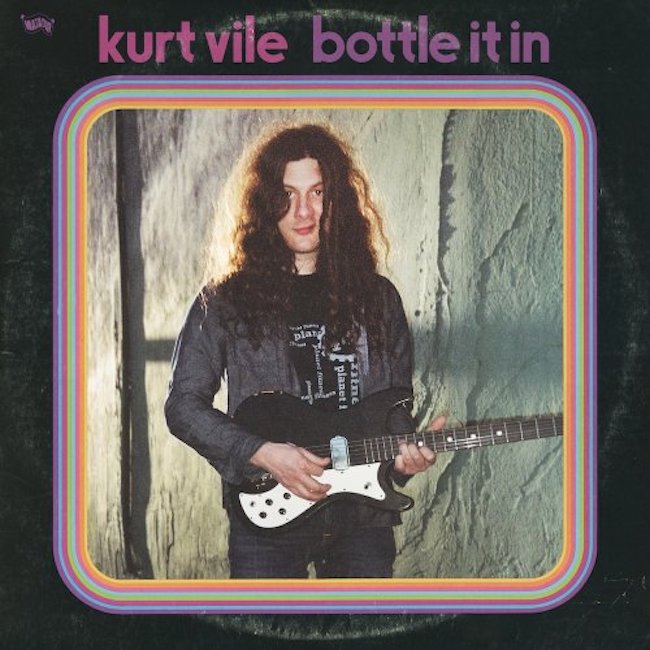
Years before he was an indie rock legend in his own time, Kurt Vile was a struggling singer-songwriter in Philadelphia recording scores of psych-folk gems at home and distributing them by hand via homemade CD-Rs. His latest album, Bottle It In, feels like a return to the spirit of those times, compiling some of his warmest and most inviting songs laid down during an explosion of creativity in the past few years. The result is an album that reminds long-time admirers of his many strengths as a songwriter and guitarist, and acts as a handy entry point for newcomers, offering a kind of compendium for his career up until now.
There are catchy, concise jams (“Loading Zones”), witty stoner-friendly tangents (“Check Baby”), spacy Americana (“Yeah Bones”), and several long, hypnotic zone-outs like “Bassackwards” and the stunning title track. (There’s also a surprisingly straight-forward cover of Charlie Rich’s “Rollin’ With The Flow” that spotlights Vile’s burgeoning interest in country music.) Throughout Bottle It In, Vile displays the loopy humor and sneaky melancholy that have become his trademarks. At all times, he’s an affable presence, the kind of dude you’re happy to hang with for the better part of an afternoon.–S.H.
17. JID, DiCaprio 2
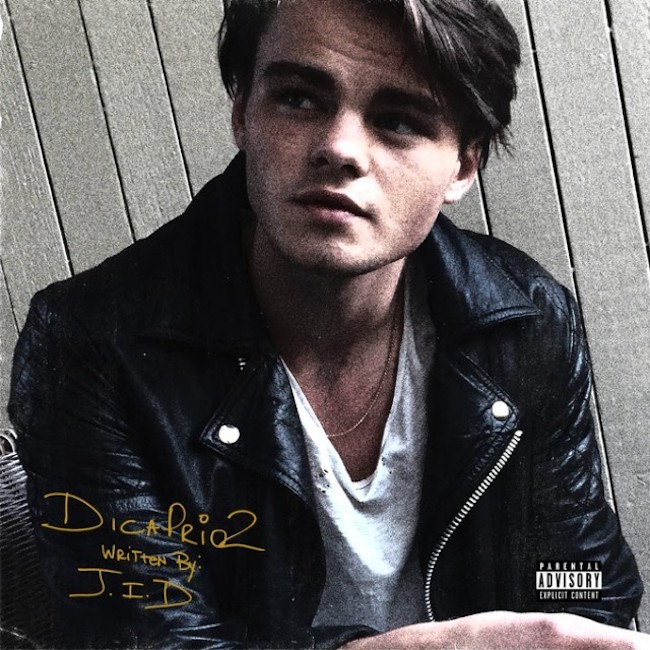
JID was a 2018 XXL Freshman, but he’s soon set to be a principle figure of hip-hop. His recently released Dicaprio 2 album showcased why. The tongue-twisting Atlanta artist showed off his mastery of flow, stretching and contorting his voice over a range of beats that run the gamut of vibes, such as the majesty of “Slick Talk,” funky jazz-hop of “Hot Box” featuring Method Man and Joey Badass, and the surging “Off Deez” with J. Cole, where the two try to rhyme faster than the speed of light.
But the Mac Miller-influenced Dicaprio 2 isn’t just about vocal acrobatics – the young Atlanta rhymer is spittin’ his ass off. He’s the total package on the project, showcasing impressive technical lyricism, slick wordplay, and sage-like lines like “I’m from East Atlanta like Gucci and Travis Porter / But my story is similar to the hare and the tortoise” on “Slick Talk.” He also drops incisive social commentary on the so-called “war on drugs” on “Off Da Zoinkys,” while “Skrawberries” is a smooth narrative of young love. He’s doing it all on Dicaprio 2, emerging at the eleventh hour with one of the best hip-hop records of the year.–A.G.
16. Troye Sivan, Bloom

F*ck being the biggest “queer” pop star in the world, Troye Sivan is going to be the biggest pop star, period. His opulent, joyous Bloom is a sophomore album with the star-making power of a debut — no disrespect to his actual debut, Blue Neighborhood from 2015 — and it will be the record that soars into Sivan’s personal mythology as the one where the world began to understand what he has always known.
What do we know now? That Sivan is a force. He won’t be bound by labels and subgroups but is the kind of artist who is destined for fame so expansive it drops any pretense of gender, sexuality, name, or origin story. Like Michael, Justin, and Taylor before him, soon, he’ll just be Troye. From the aching elegance of “Seventeen” and “The Good Side” to the overwhelming sweetness of “Dance To This” and “Lucky Strike,” all the way to the soaring pop grandeur of the title track and “My My My,” Sivan hits every emotional note with his dreamy, unbridled songwriting.
Speaking of which, he has a co-writing credit on each of the ten tracks here, and did on every song off his debut, too. Though he’s undeniably beautiful, Sivan is not just another pretty face — even if his background as a Youtuber and an actor informs his impossibly polished, charismatic stage presence. He’s an artist in every sense of the word, here to claim the label “queer popstar,” and take it worldwide.–C.W.
15. Various Artists, Black Panther, Original Soundtrack
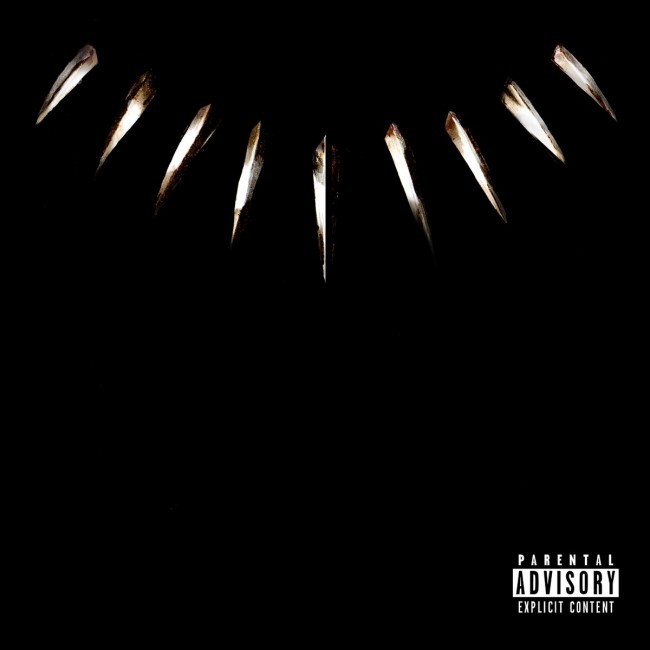
It’s only right that a movie as titanic as Black Panther received a blockbuster soundtrack. That’s exactly what Marvel pulled off here, as Kendrick Lamar executed his curatorial debut with the precision of a Killmonger kill. Kendrick saw to it personally that the album had the hits to match Black Panther‘s box office success, with his wondrous “All The Stars” collaboration with SZA, surging “Pray For Me” with The Weeknd, and “King’s Dead” banger with Future, Jay Rock, and James Blake.
But beyond the numbers, Kendrick augmented the beloved pro-Black movie with songs inspired by its major themes – and Africa. “Are you a king or you joking, are you a king or you posing?,” he asks on the title track, reflecting the qualms that T’Challa has on film. On “Seasons,” after Mozzy and Reason analyze the perils of systemic racism that Killmonger suffered through, Kendrick powerfully states, “I am T’Challa. I am Killmonger. One world, one god, one family,” converging the two character’s worldviews into the ideological dynamism that is Blackness.
Despite his mastery as an executive producer, he knew when to take a back seat and let a slew of talented South African artists such as Sjava, Yugen Blakrok, Babes Wodumo, and Saudi show their skills. Reaching out internationally is a royal mandate, after all.–A.G.
14. Soccer Mommy, Clean
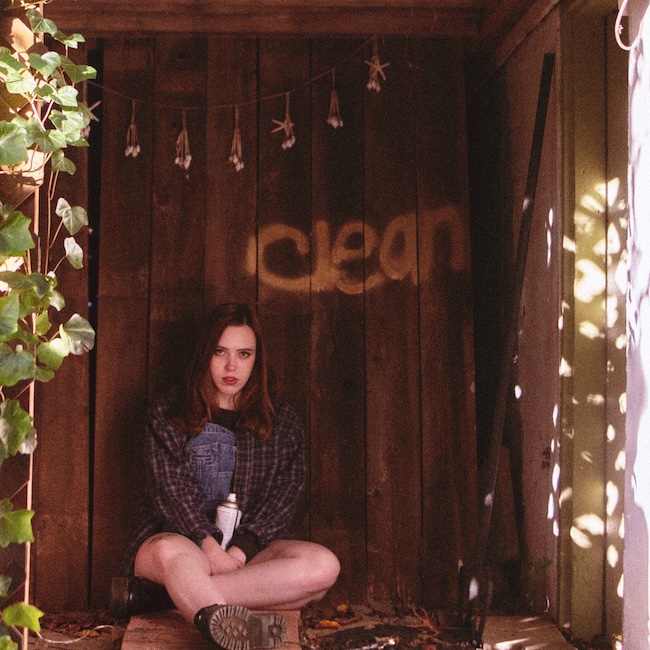
21-year-old Sophie Allison writes with such stunning acuity, it’s hard to believe Clean is the first album she recorded for a label. Its individual songs are great — “Your Dog” and “Cool” stand as pop-rock bangers on their own, and “Scorpio Rising” is a heartbreaker even if you don’t know the parts of the story that precede it.
But Clean is such a thematically cohesive album that it demands to be listened to in order. Allison meditates on “clean” as a metaphor for leaving someone, the myth of a “clean break,” and our hope that we might stain the people we leave behind. Apart from her DIY lyrical genius, Allison also has an incredible pop sensibility and ear for a melody. “Cool” has been stuck in my head since March, and it’s the best song about that feeling of half-jealousy, half-intrigue toward another woman since Little Big Town’s “Girl Crush.” With Clean, Soccer Mommy established herself as one of pop-rock’s most exciting up-and-comers, a songwriting legend in the making. Hell, she’s already made it.–C.G.
13. Beach House, 7
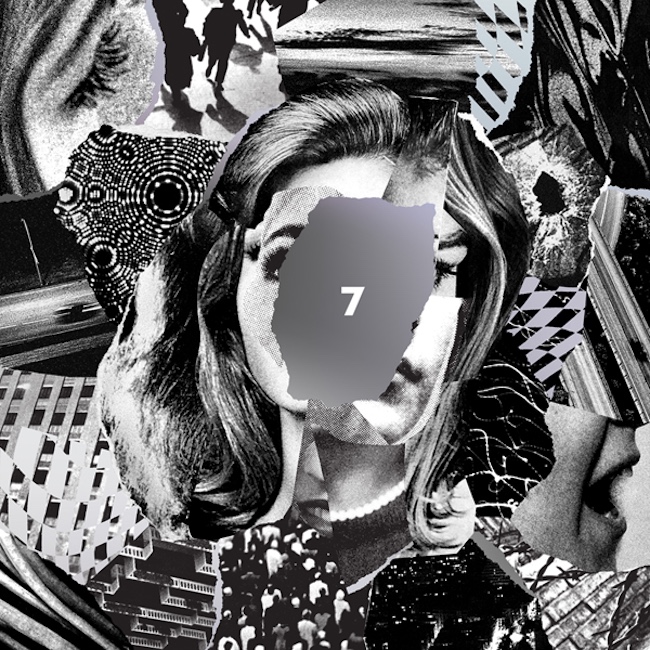
There’s a moment on Beach House’s appropriately titled seventh album, 7, in which the band that had long built their aesthetic on mood and subtlety blasts off into the stratosphere. It’s about halfway through “Dive,” when the glacial keyboard tones give way to locomotive guitars and propulsive drums, reaching a tempo of panoramic rock that the band had never really hinted at previously. More than ten years into their career, and this Baltimore duo still has new tricks up their sleeve.
That’s part of what makes 7 so special, but not the whole story. One of the narratives for Beach House’s career has been their consistency, with some almost weaponizing that against them, finding their continual high bar a reason to paint their albums as indistinguishable. But the truth is that their moves have always been concentrated, carefully orchestrated, and deliberate. So, the decision to make an album in 7 that was not necessarily easy, or possible, to faithfully create live resulted in a record that’s easy to distinguish from the pack. They sound freer than the band has ever been because, in fact, they were. Dream pop, shoegaze, and psychedelic rock all live together in harmony on 7, reimagining exactly who Beach House is, at least until the next album.–P.C.
12. Saba, Care For Me
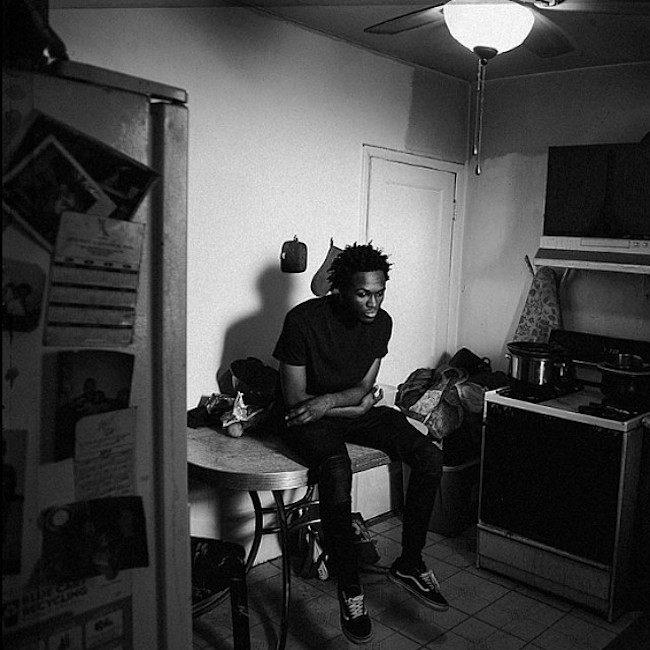
At just ten tracks, you wouldn’t think Saba’s second studio album would meet the critical criteria to compete with the longer offerings on tap in 2018, but actually, it presents likely the best argument for concise, compact, and cohesive sonic statements that there could be. When Saba’s cousin and crew member John Walt was killed at the beginning of the year, the Chicago rapper used that grief and despair to fuel his artistic fire, crafting one of the most intricate, thoughtful, and aware pieces of rap musicianship of the past 12 months.
It’s melancholy, as an album about the death of a family member would be, but also unexpectedly and suddenly joyful, by turns introspective and defiant as Saba waxes nostalgic about the life lessons he’s gleaned from his mourning and enduring survival — as well as the resultant survivor’s guilt that haunts tracks like “Prom/King” and “Heaven All Around Me.” But there’s also, in all that ruminating, an important lesson: Life goes on. Saba takes time to rebuke our modern addiction to social media on “Logout” alongside Chance The Rapper, arguing that we’re all wasting precious moments staring at screens, and takes a moment to appreciate his own skill and the work required in its maintenance and improvement on “Calligraphy.” As much as he looks back on Care For Me, it’s a forward-facing album whose most enduring message is to live in the now and savor every second.–A.W.
11. Robyn, Honey
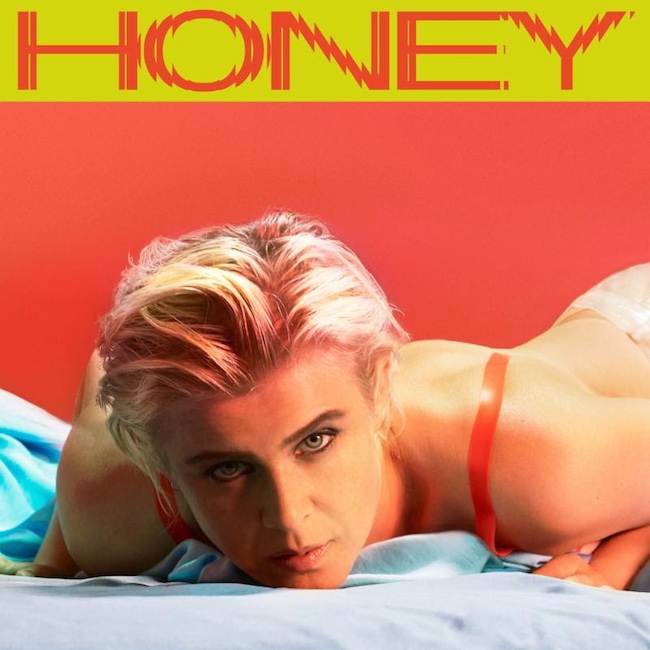
Robyn is a master of putting words to complicated emotions. When you listen to her songs for the first time, you latch onto the joy in her cathartic vocals, the freedom in the synths. But there’s also a sadness underneath it all that unfurls further with each listen, as you get to know the songs better. Robyn takes you so deep inside her joy that you can see the loneliness at the heart of it. Or, maybe it’s the opposite. Maybe it’s joy buried within loneliness.
In the eight years between Body Talk, her 2010 album, and Honey, Robyn lost a dear friend and close collaborator. The songs on Honey are a little quieter and denser than some of her old material, weighed down by this grief. “Missing U” and “Honey” build to that same Robyn catharsis, but her joy is less exalting and more like a deep exhale of relief. It’s the kind of album you need time and space to appreciate, a dozen listens to let the heaviness of the songs wash over you so you can access the sweetness inside.
And the sweetness is there. No matter how ugly things get, there is joy worth collecting from the world. A deserted dance floor has room to move. A broken heart still beats. A heart that has stopped beating might leave an empty space in its absence, but somehow, that space is never actually empty. Robyn herself says it best on “Missing U”: “Ooh, baby, all the love you gave, it still defines me.”—C.G.
10. Earl Sweatshirt, Some Rap Songs
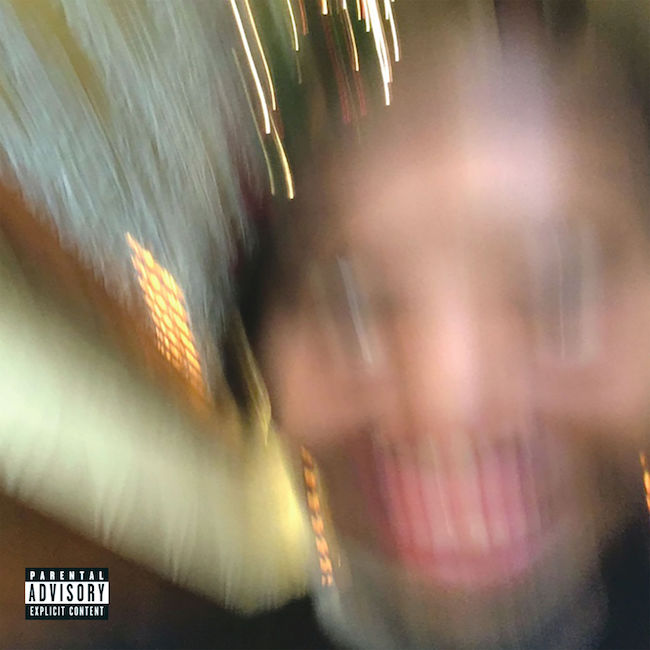
Off-kilter, unconventional beats and introspective, stream-of-consciousness verses highlight the long-awaited return of the former Odd Future wunderkind who last blessed his fans with a full-length project in 2015 with I Don’t Like Shit, I Don’t Go Outside. Some Rap Songs is a cerebral collection of just that, clocking in at a concise 25 minutes and 15 tracks, where everything from the sample-heavy beats to the intricate rhyme patterns exists in service to Earl’s single-minded emphasis on transforming emotional turmoil into complex raps. From the first single, “Nowhere2Go” to the Navy Blue-sampling “The Mint,” Earl exhibits the complicated lyrical schemes that first garnered him attention on those early Odd Future releases.
On the song “Playing Possum,” he incorporates a recording of his father, South African poet Keorapetse “Bra Willie” Kgositsile, reading his poem “Anguish Longer Than Sorrow,” along with audio of Earl’s mother speaking about him. The song was meant to surprise his estranged parents as a gesture of reconciliation, but due to his father’s death earlier this year, stands as a tribute to the man who probably most inspired Earl’s love of the oral tradition. It’s a microcosm of the album as a whole; Earl venting his innermost thoughts in his favorite medium.–A.W.
9. The 1975, A Brief Inquiry Into Online Relationships
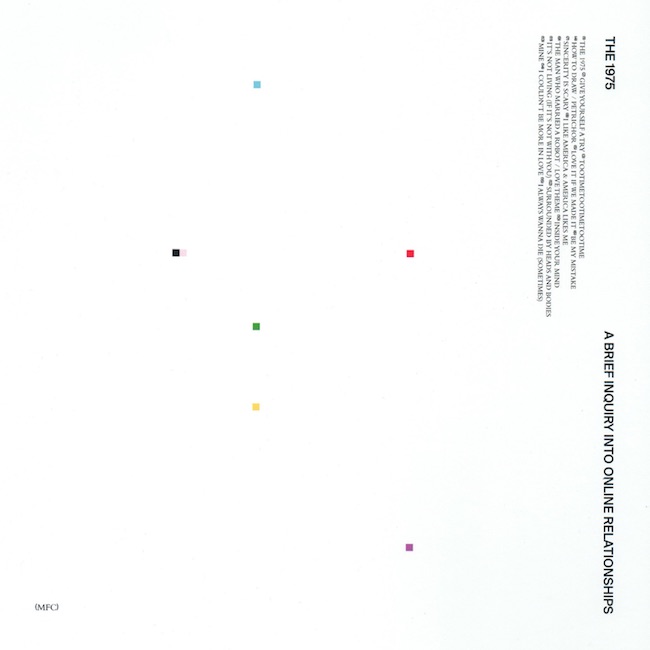
It would have been very easy for The 1975 to make a radio-friendly, watered-down album with all ears on them for the feverishly-anticipated A Brief Inquiry Into Online Relationships. In fact, they are exactly the type of band that could have done so and done it very well. But as the Manchester four-piece rolled out the singles to their third career album, it became very clear that something else was in store. Instead, we have a rock band for the era of rock’s popularity recession, speaking to the moment that their art is released, be that lyrical references to Lil Peep, sonic references to Bon Iver, and an album construction that seemingly couldn’t come from anyone else.
And maybe that’s the most impressive part of The 1975 and this album, how utterly singular it sounds in the current music landscape. Massive singles that seem destined for TV syncs and hip playlists are spaced with emotional balladeering and experimental diversions. There’s even a robotic technophobic spoken word interlude that recalls another British band who did that same thing on their own mainstream-shunning third album, OK Computer. A Brief Inquiry Into Online Relationships is ultimately an album that strives to be a grand statement, that dares to mythologize while still presenting themselves as a millennial band that baby boomers could like. And the best part is that they succeeded.–P.C.
8. Cardi B, Invasion Of Privacy
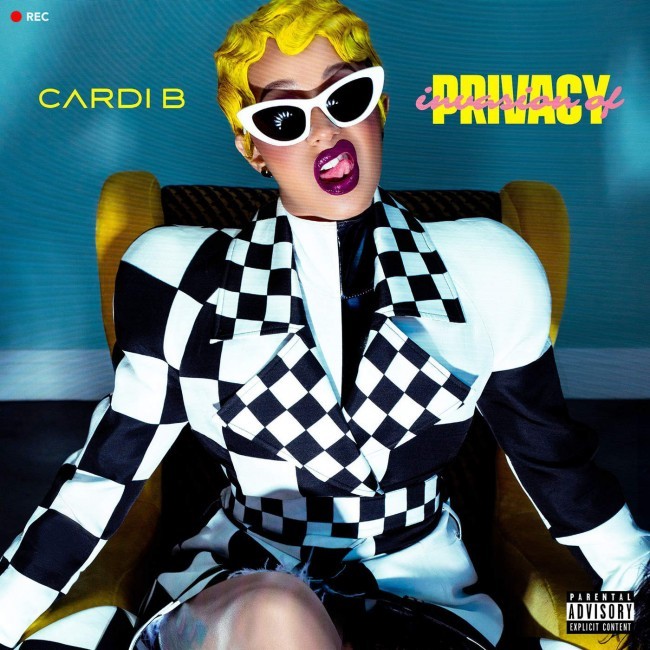
Cardi B’s debut album, Invasion Of Privacy, remains one of the most talked about records of 2018. According to Apple, Cardi’s debut was the most streamed album by a female artist in a single week — with over a hundred million streams — and that was just on one streaming platform. It’s an impressive entry, forcing the industry to give Cardi B her props. Kicking off with “Get Up 10,” clearly inspired by Meek Mill’s “Intro,” Invasion Of Privacy is consistent and delivers more than what staunch music critics initially expected, that she’d remain a one-hit-wonder with her Billboard Hot 100 bop “Bodak Yellow.”
Songs such as the radio-friendly “I Like It” featuring J Balvin and Bad Bunny and the Kehlani-assisted “Ring” debunk this theory in whole. Other cuts, like “Drip” featuring Migos, “Best Life” featuring Chance the Rapper, and “Be Careful” are all solid numbers that demand Bardi get her respect. Furthermore, all thirteen songs off the multi-platinum Invasion Of Privacy entered the Billboard Hot 100 charts, as streams for the project reached the millions, and twelve of those songs got RIAA certifications. Shortly after the release of the album, Cardi announced her pregnancy on Saturday Night Live and vowed to not let that slow her down. Though she did pull out of Bruno Mars 24K tour, she made an incredible appearance at this year’s Coachella, and despite having to deal with her ongoing beef with Nicki Minaj (which is supposedly dead), Cardi B really came out on top in 2018 when a lot of people doubted her. Get up 10, indeed.–C.J.
7. Father John Misty, God’s Favorite Customer

It was a relatively quiet year for Father John Misty, who decided after the tumultuous and all-pervasive press cycle for 2017’s Pure Comedy to let the music do the talking on God’s Favorite Customer. It’s also likely that Josh Tillman’s latest song cycle was simply too painful or awkward to discuss in the press — anguished ballads like “Please Don’t Die” and “The Palace” clearly are inspired by his own troubled romantic life. Not that it ultimately mattered — God’s Favorite Customer is more than capable of standing on its own as one of the very best, if not the best, release to come during Tillman’s staggering run of the albums in the past several years.
Anyone who blanched at the polarizing grandiosity and acerbic commentary of Pure Comedy had to be coaxed back by Customer, which offers a series of punchy, tuneful, and heartfelt love songs not far removed from his 2015 breakthrough, I Love You, Honeybear. And yet this isn’t just the sound of a gifted singer, songwriter, and provocateur deciding to play it nice and safe. Coupled with the nakedly autobiographical nature of the songs, Tillman has also deepened his level of craft, with songs such as “Disappointing Diamonds Are The Rarest Of Them All” offering both his sharpest hooks and most pointed observations about the fleeting (and yet still vital) nature of love.–S.H.
6. Noname, Room 25
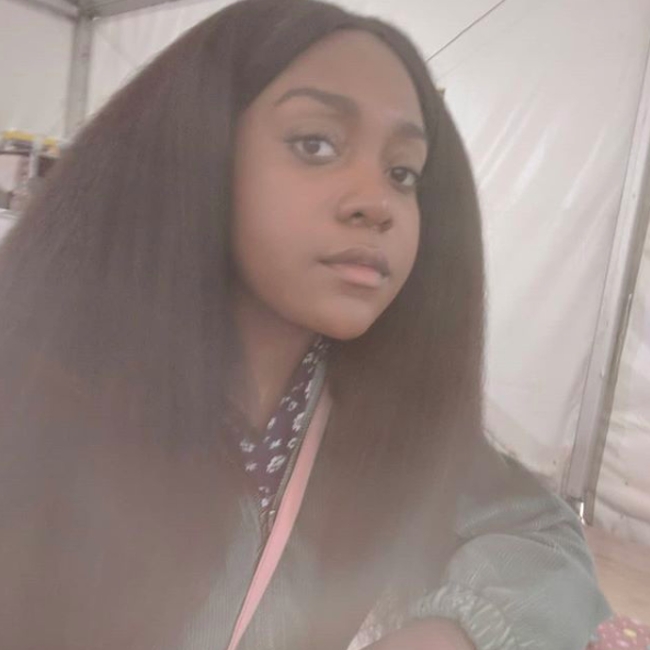
After dazzling the rap world with the pure poetry of her effervescent debut album, Telefone, Chicago rapper Noname returned from a two-year hiatus with the self-funded, coming-of-age project, Room 25. While her existing catalog had engaged audiences with its almost painfully diaristic honesty, her latest album adds a layer of bold confidence, the kind that only comes with experience and mastery.
To her credit, she’s more than earned the right to boast. Her pen game, already whip-quick and elegantly intricate, elevated in the two years between projects. Where on Telefone, her lyrics bobbed, weaved, and danced between the pockets of the jazzy, dreamlike production, on Room 25, she adds jabs and combinations, becoming proactive and proud on tracks like “Self.” Poetry can have punch, which seems to be the thesis of her new approach to her introspective style. Gone are the PG-rated “lullaby raps” of her debut, replaced by vital political and sexual statements of self-actualization. On “Blaxploitation,” she challenges listeners with poignant punchlines and declarations like “Put a thinkpiece in the rap song, the new age covenant.” If rap is just poetry put to beats, Room 25 is Noname’s unapologetic return to its roots, fertilized and flowered, providing a powerful new perspective on a genre that continues to grow outside the bounds of its established mandate of parties and bullsh*t.–A.W.
5. Ariana Grande, Sweetener
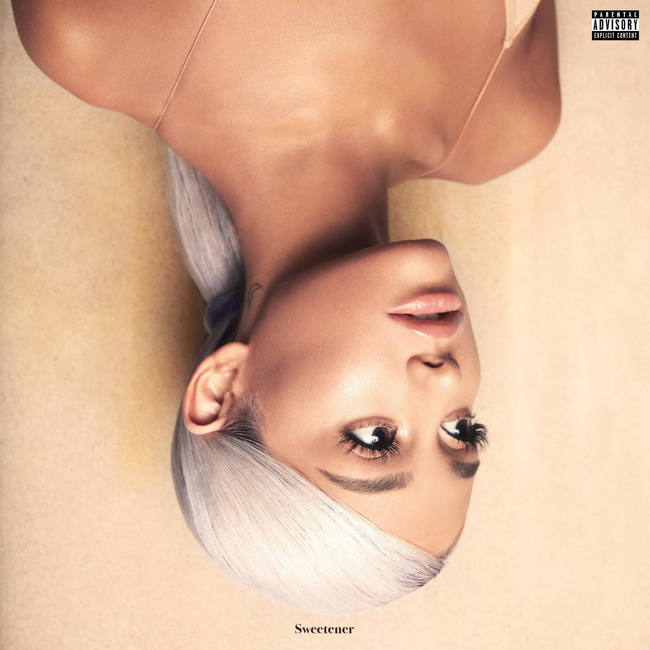
It’s weird listening to Sweetener now that Ariana Grande and Pete Davidson have broken up.
Grande was working on Sweetener for months before she was engaged to Davidson, but it’s impossible to separate him, and their quickly metabolized relationship, from these songs. (There’s a song literally called “Pete Davidson,” after all.) You can hear the way Davidson made her laugh on “Sweetener,” and how much it meant to her to be laughing again. You can hear Grande reasoning with herself on “R.E.M.,” in the way she sings “‘Excuse me, um, I love you’ / I know that’s not the way to start a conversation, trouble,” the way she repeats “wake up” almost like she’s telling herself that all of this is irrational. Wake up, wake up, wake up, wake up. No one falls in love this fast!
Except, sometimes we do. Sometimes we’re surprised by the irrational objects of our affection, and we pursue them no matter how many people tell us they’re not worth it. They make us happy, which is worth something, especially when there’s not much sweetness in the world.
Sweetener was an incredible album when it was released in August. It’s immaculately produced. Grande has a killer voice, but she keeps it soft here, proving that she’s more than just a high pony who can belt. There’s care and love in these songs, in the writing, production, and obvious dedication. Sweetener was brilliant when Ariana Grande was in love, and somehow it’s even more brilliant now.
It’s weird to listen to “R.E.M.” now and to know that Davidson is making jokes at Grande’s expense on Saturday Night Live. It’s weird to listen to “Better Off” now that Mac is gone, and to bounce to “No Tears Left To Cry” and be reminded that the tears never stop coming.
But Sweetener is a monument to happiness and time spent together. It’s all the more brilliant for capturing those fleeting feelings, the sparkle of new love, bottling the feeling and making it shine brighter than its source.–C.G.
4. Janelle Monae, Dirty Computer
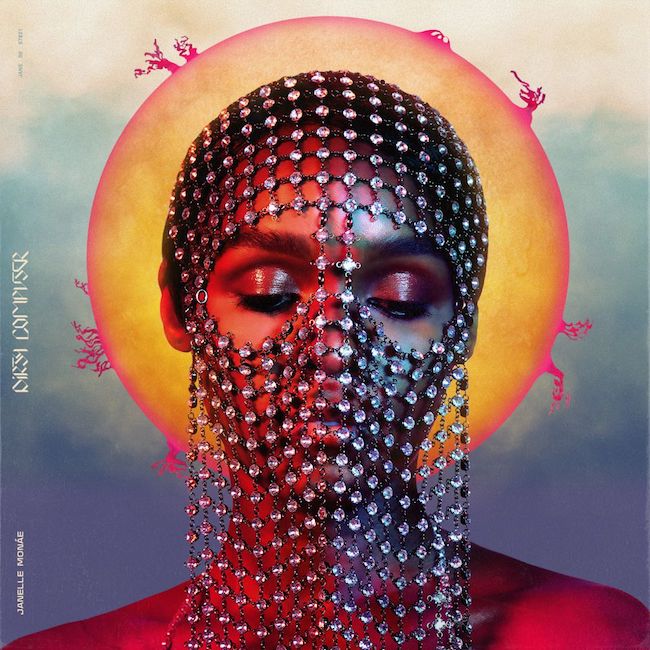
Whether or not you were already hanging onto cyborg popstar Janelle Monae’s (damn) bandwagon, or even aware of the alternate funk-cosmos she’s been quietly laboring over for many years now, the release of her third full-length album, Dirty Computer, thrust her career into such a state of hyperspeed that she was unavoidable in 2018. Luxuriating in a more down-to-earth aesthetic this time around, the spacey, ever-regal Monae makes room for the freaks, the geeks, and the outsiders on her triumphant opus.
Yet, there was probably not a more sumptuous album in 2018 than Dirty Computer; it reveled in sensuality and tenderness, claiming space, particularly, for Monae to make her own coming out statement of pansexuality, giving these songs a revolutionary feel even when they hover around the tiniest moments of intimacy. To openly express queer love is still a radical act, even more so at the intersections of gender and race. Still, Monae is fully aware of the statement she’s making when she spreads her legs in the video for “Pynk” claiming the power of the pussy with such easy elegance. It’s hard to imagine anyone finding a way to take offense.
Enlisting collaborators as varied and renowned as Brian Wilson, Zoe Kravitz, Grimes, and Pharrell, each is just another star in Monae’s universe, a galaxy she rules with as much queenly reverence here on earth as she did in her former galactical iterations. If there ever was an artist fit to take up the mantle of Prince, her former mentor, it’s Monae — a woman unafraid to be herself, and guiding the listener into a better version of their own character by the end of every song. —C.W.
3. Arctic Monkeys, Tranquility Base Hotel + Casino
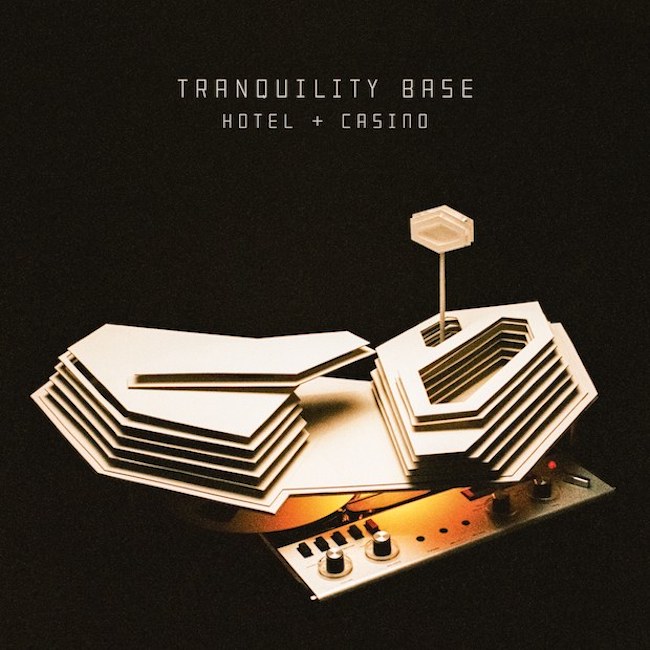
With 2013’s mega-successful A.M., Arctic Monkeys confirmed their status as one of the best and most popular arena-rock bands on the planet. Five years later, they returned with an album that boldly eschewed its predecessor’s dusky, riff-centric flexing. In the place of aggressive and sexy rock anthems, singer-songwriter Alex Turner penned a series of wild, weird, wordy, wacky, wayward, and thoroughly wonderful torch ballads about the slow apocalypse of modern life.
Slipping comfortably into a vampire’s croon reminiscent of David Bowie during his coked out mid-’70s “Thin White Duke” period, Turner ruminates on a range of bizarre obsessions — everything from The Strokes to Blade Runner to a rating system for interstellar taco stands — that somehow add up to a series of hilarious, stream-of-consciousness narratives. Musically, Arctic Monkeys dig up some new sonic reference points utterly divorced from chunky, snotty rawk songs they made their name on. (Dion’s infamously druggy and self-indulgent 1975 curio Born To Be With You was a primary inspiration — look it up, it’s just as wondrous and head-scratching as Tranquility Base Hotel + Casino.) A sci-fi concept album that satirizes vapid online culture by imitating its broken vocabulary, Tranquility Base Hotel + Casino ultimately thrills because Arctic Monkeys stubbornly insist on being inscrutable at a time when pop seems more predictable and programmed than ever.–S.H.
2. Kacey Musgraves, Golden Hour
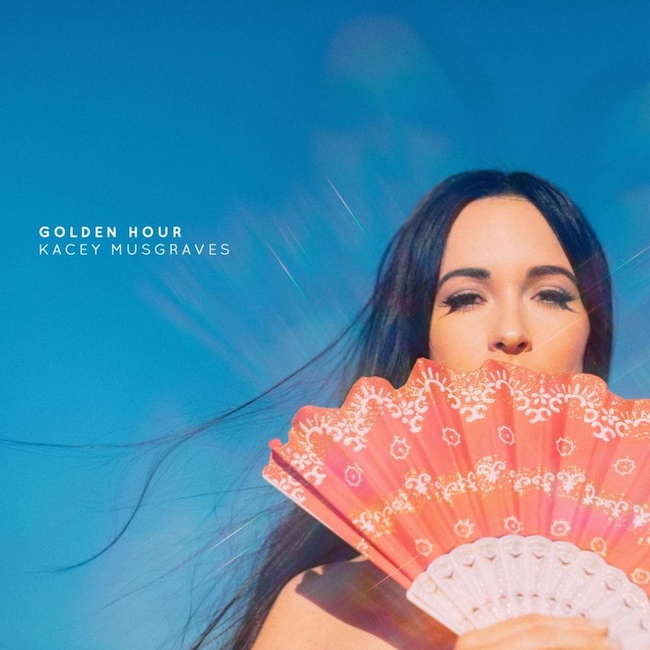
Just a couple weeks ago, Kacey Musgraves took home the Album Of The Year award at the CMAs, a moment that was notable for many reasons. For one, she was just the second woman this decade to nab the honor, in a year where she was the only one nominated. That’s not particularly surprising considering how male-centric the commercial wing of the genre is, but Kacey was breaking down another door that night than just one for female representation. Golden Hour was also not a success at country radio at all, and she didn’t even service her singles to the format, despite the fact that many of the songs feel like they should be massive on the heartland airwaves in a perfect world. Country music’s oldest guard — as represented by the CMAs or radio — are the same institutions that caused Sturgill Simpson to busk outside of the CMAs a year earlier, as the awards usually fail to honor the brightest artistic achievements in favor of the most commercially popular ones.
All this speaks to the majesty of Kacey Musgraves’ latest album, a record that doesn’t need country music — or any genre’s — cosign to demonstrate its greatness. In it, Musgraves never paints herself into a corner, with a song like the masterful opener “Slow Burn” finding her smoking weed, disappointing her grandmother, and fooling around with boys without losing an ounce of the wholesomeness that comes through her sheer honesty and openness. It’s an album that showcases lyrical genius by updating country-western tropes for the 21st century on “Space Cowboy,” and can deliver a line about a sister in “Lonely Weekend” or a song about her mom in “Mother” that will make anyone with half a heart want to reignite their family’s group text.
Golden Hour is an open-hearted and good-natured instant classic that really doesn’t have any modern peers, coming at a time where that feels particularly novel and brave. Our own Caitlin White said that it felt like the first good thing to happen in 2018 and as the year comes to a close, it still feels like the year couldn’t top the pure joy that it brought. It’s nice that the CMAs recognize that, but with all the accolades still to come, it’s even nicer knowing that Kacey is just happy blazing her own trail, and probably blazing on the trail at the same time.–P.C.
1. Travis Scott, Astroworld
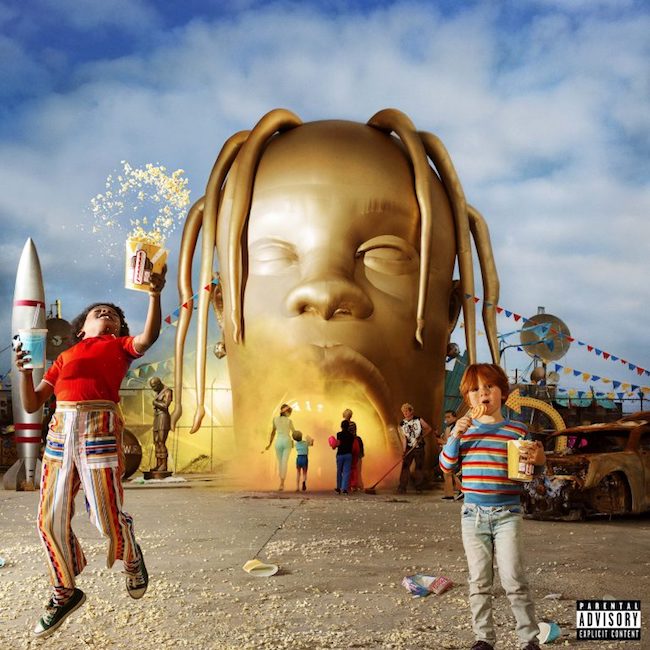
In a year with so much good music, whatever album topped our list had to be momentous. Travis Scott’s Astroworld was that, as the album rang true to its lofty title, set a new benchmark for trap music, and marked him as the biggest music-related story of the busy summer 2018. Scott became a rap superstar off of this album and he deserved to; the 17-track album was the rare long project that didn’t feel spotted with duds, as Travis was attentive to every drum pattern and beat switch. His A&R Sickamore says some of the tracks took as many as 50 sessions, and you can hear the results throughout the project.
As the vibes overseer of Astroworld, he single-handedly put to bed any notion of trap music not being a respectable music genre. He worked with music stalwarts like Stevie Wonder, John Mayer, James Blake, Earth Wind & Fire’s Philip Bailey, and Tame Impala’s Kevin Parker to shock the subgenre with a jolt of sonic nuance that other mainstream producers need to catch up to, frankly.
“Stop trying to be god” (for better) and Drake’s “I did half a Xan, 13 hours ’til I land ” from “SICKO MODE” (maybe for worse) jumped right into the cultural lexicon. Songs like “SICKO MODE,” “STARGAZING,” and “YOSEMITE” are simply unforgettable.
This one was for Houston. For DJ Screw, Swishahouse, Big Hawk, and UGK’s Pimp C, who was a classically trained artist who played four instruments. Pimp’s musicality played into the soulful foundation of trap music, and Travis carried on that legacy with Astroworld.–A.G.
Some albums on this list are by Warner Music artists. .






